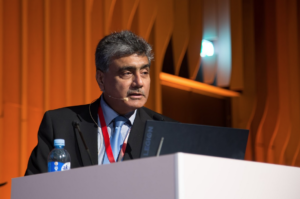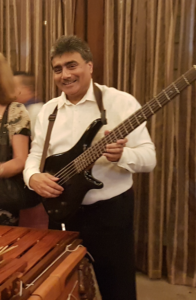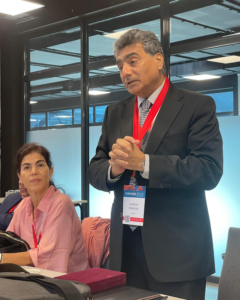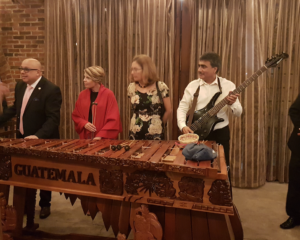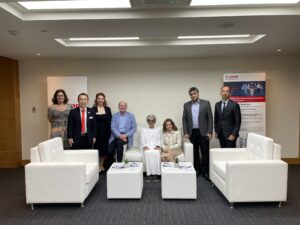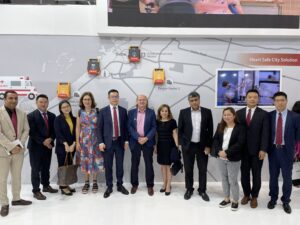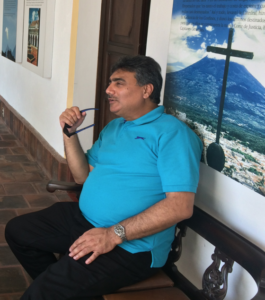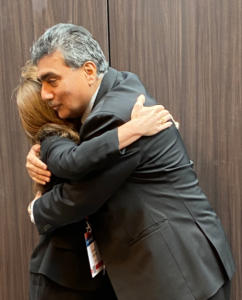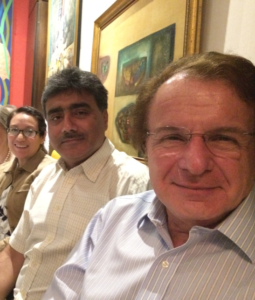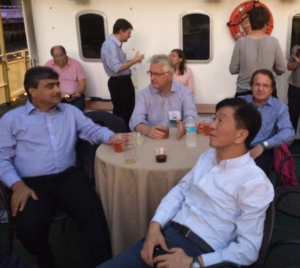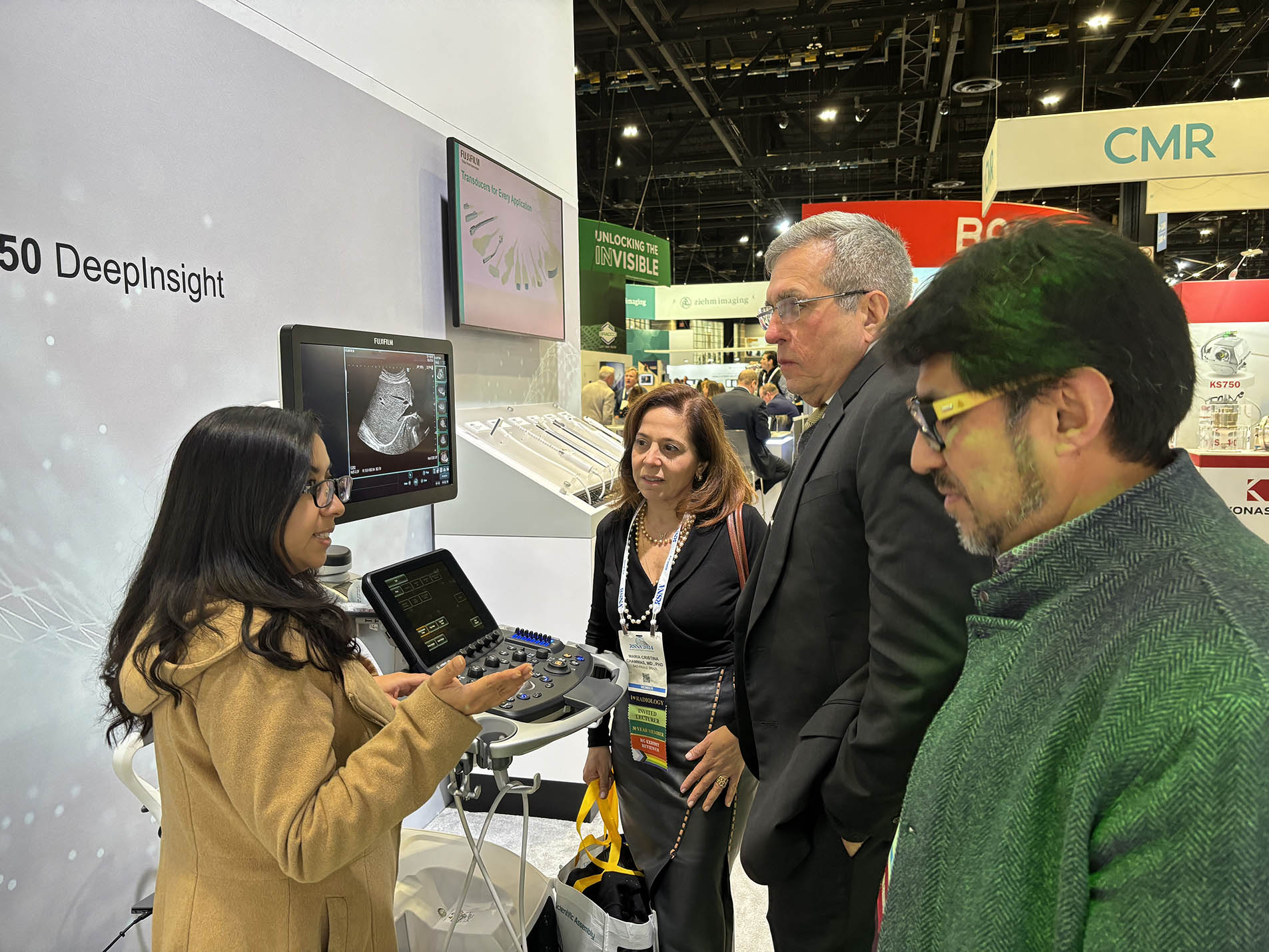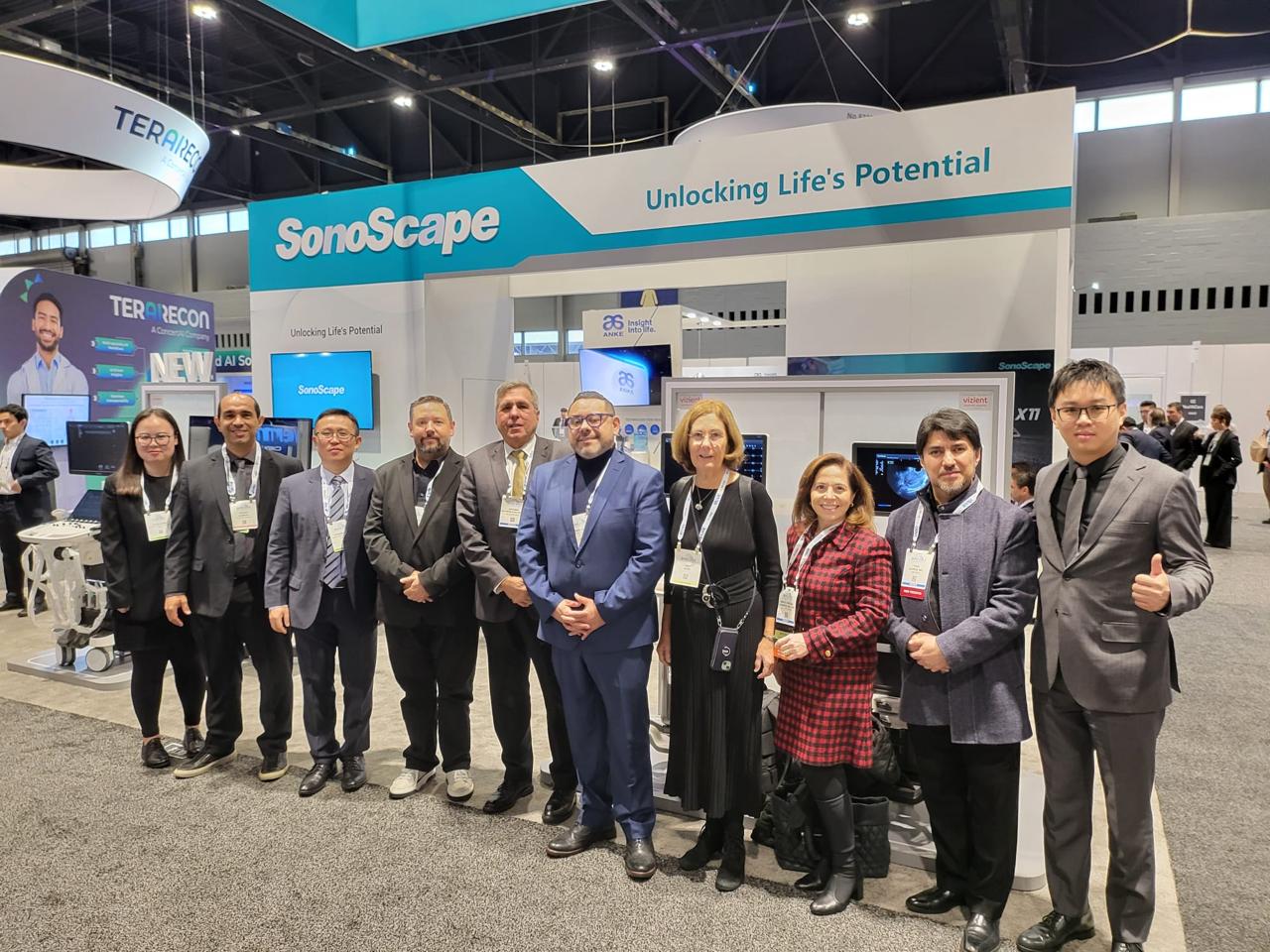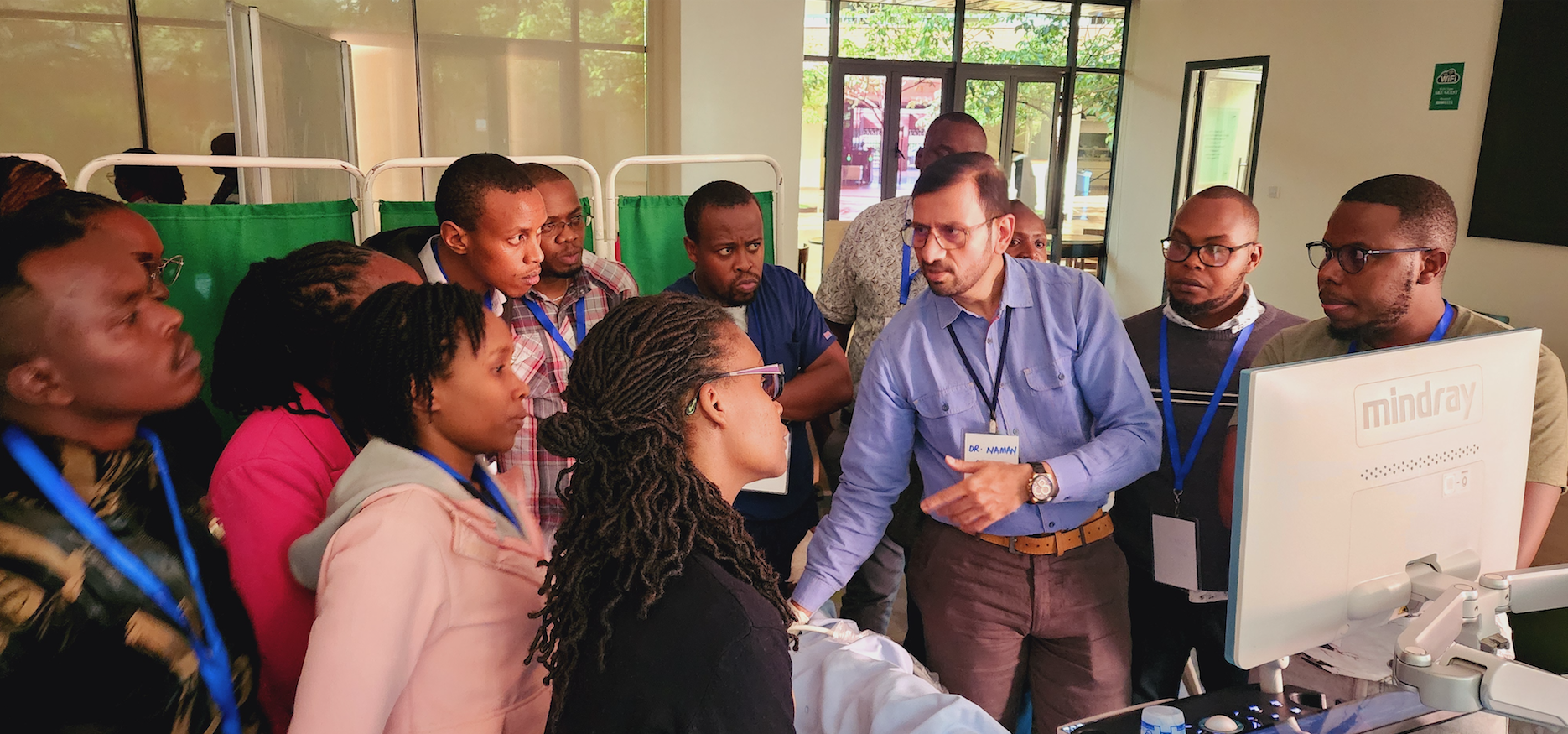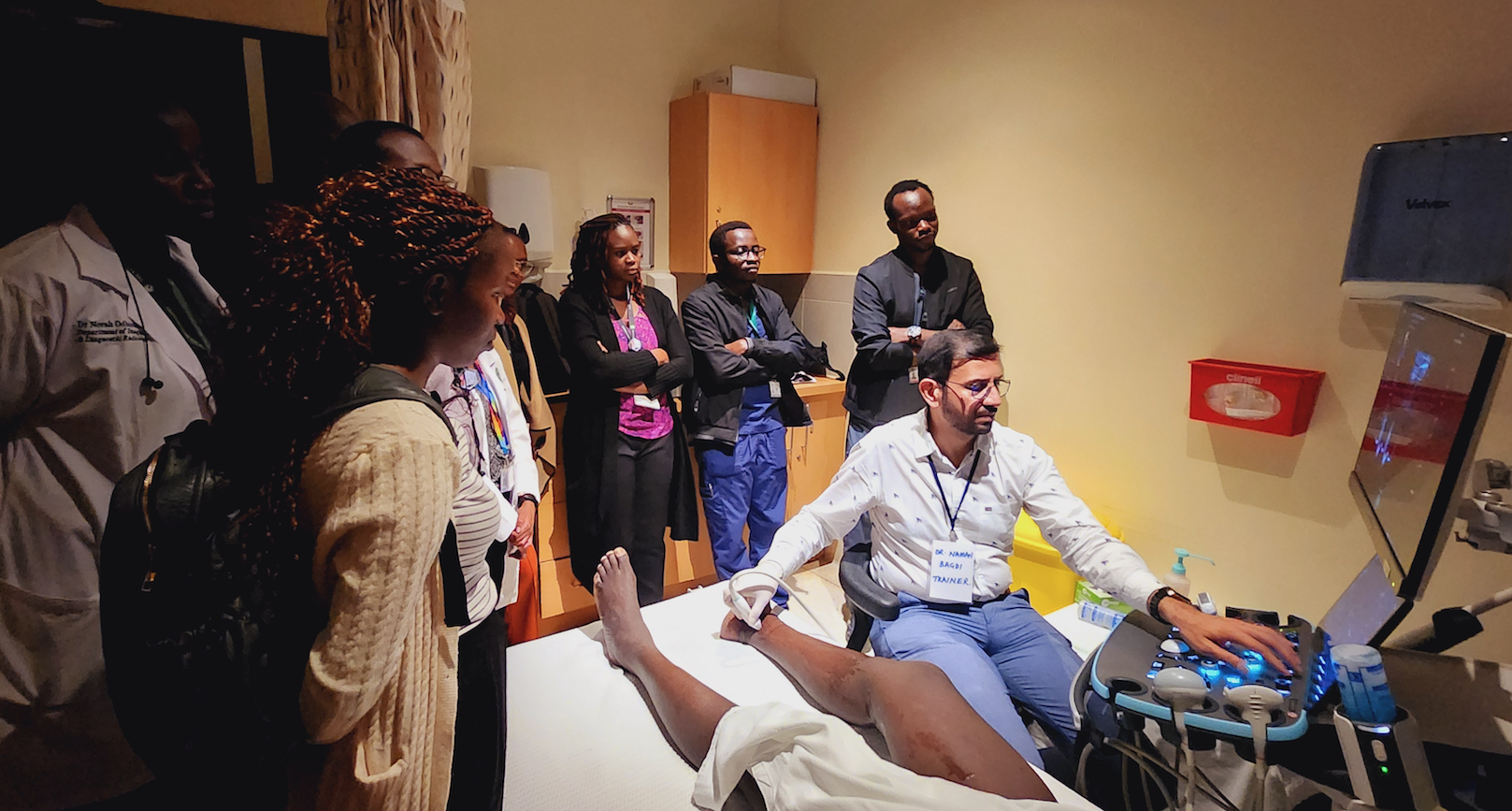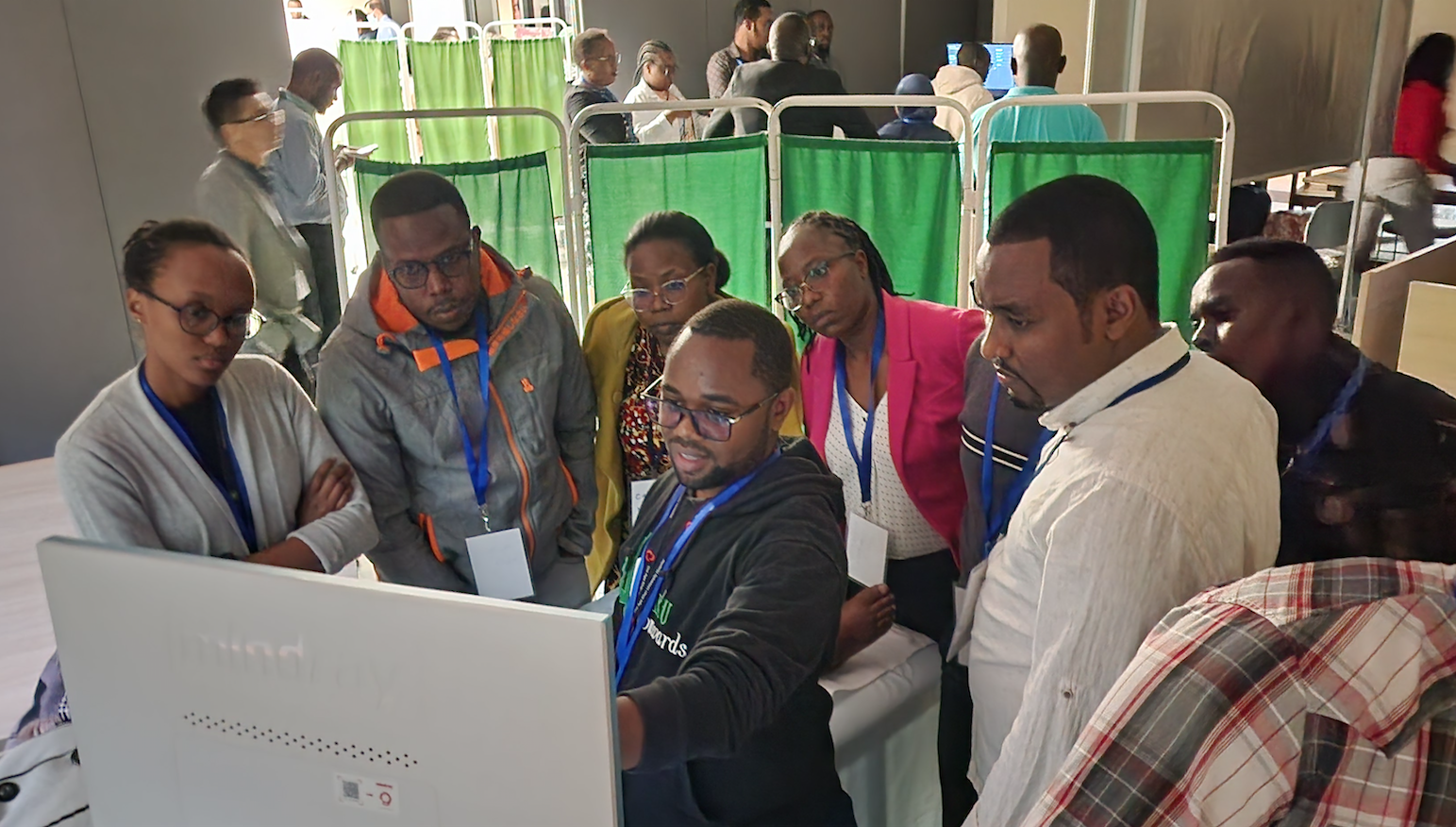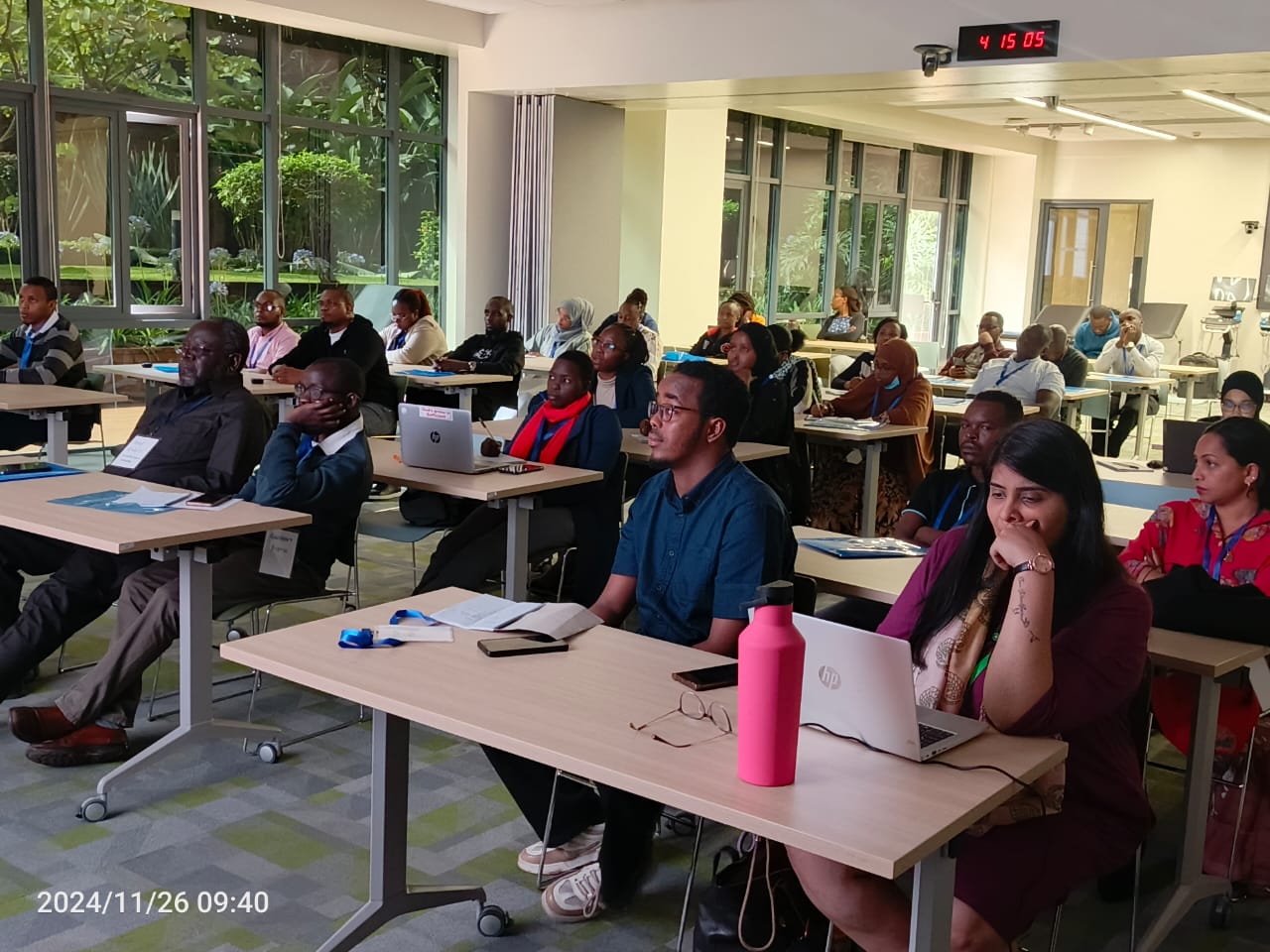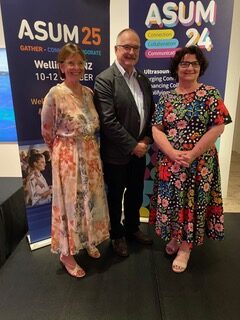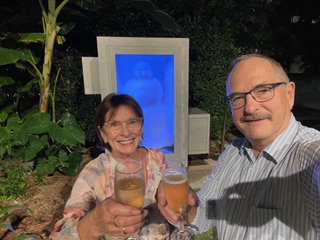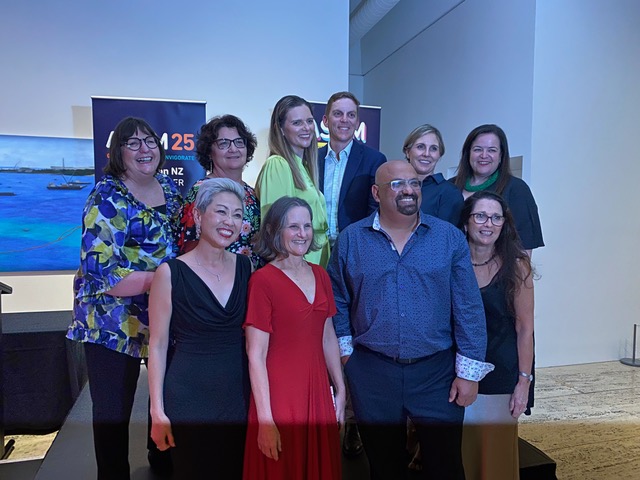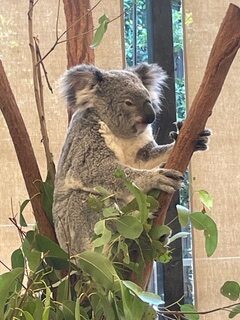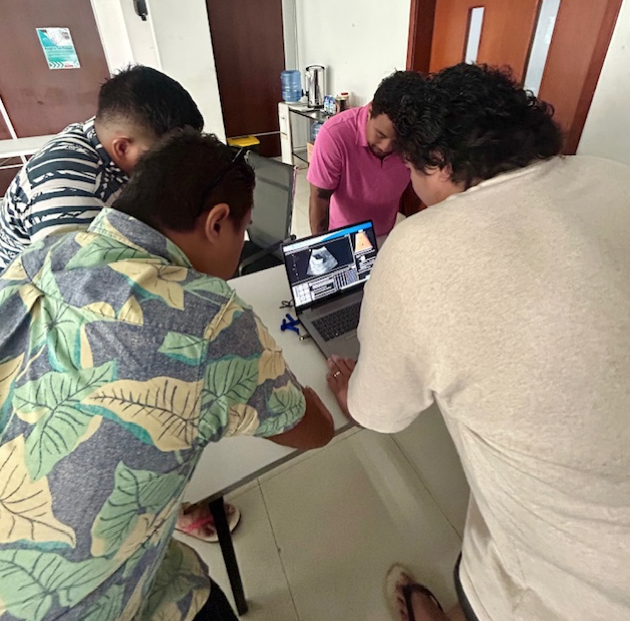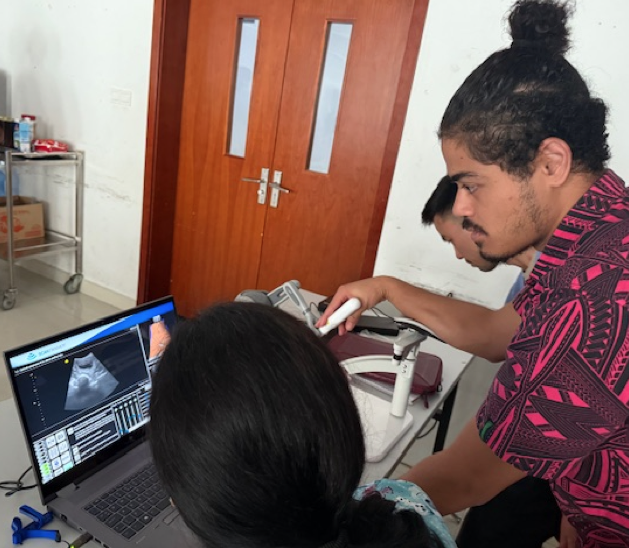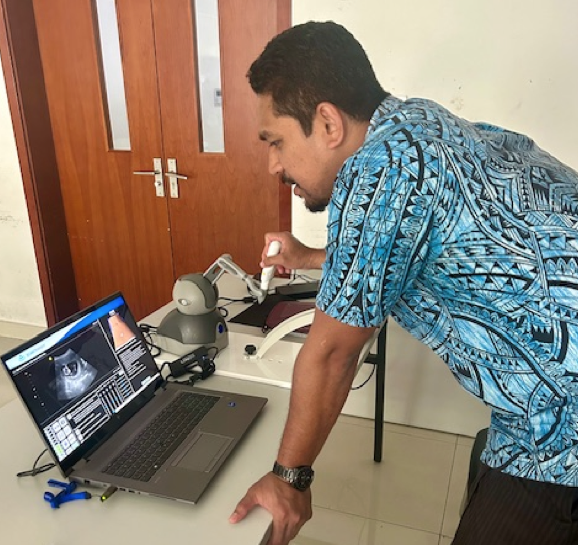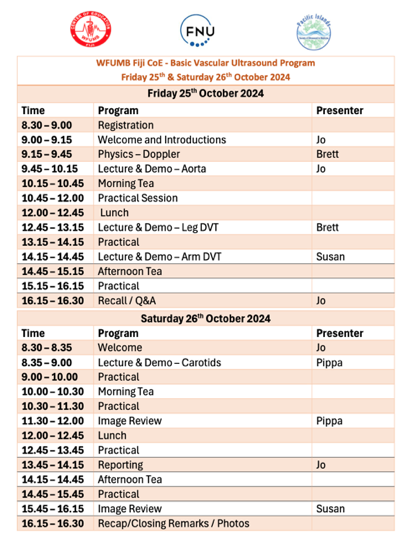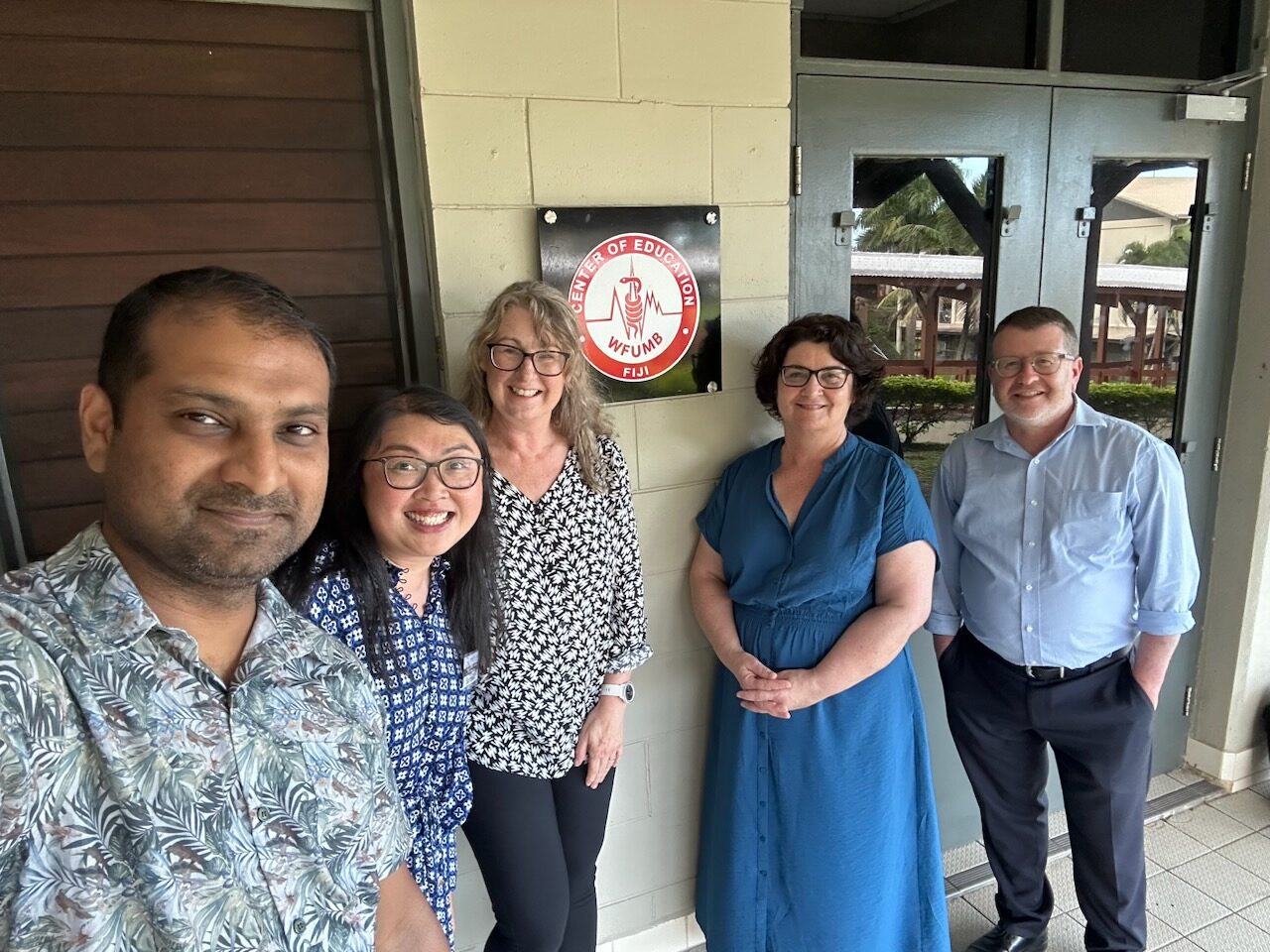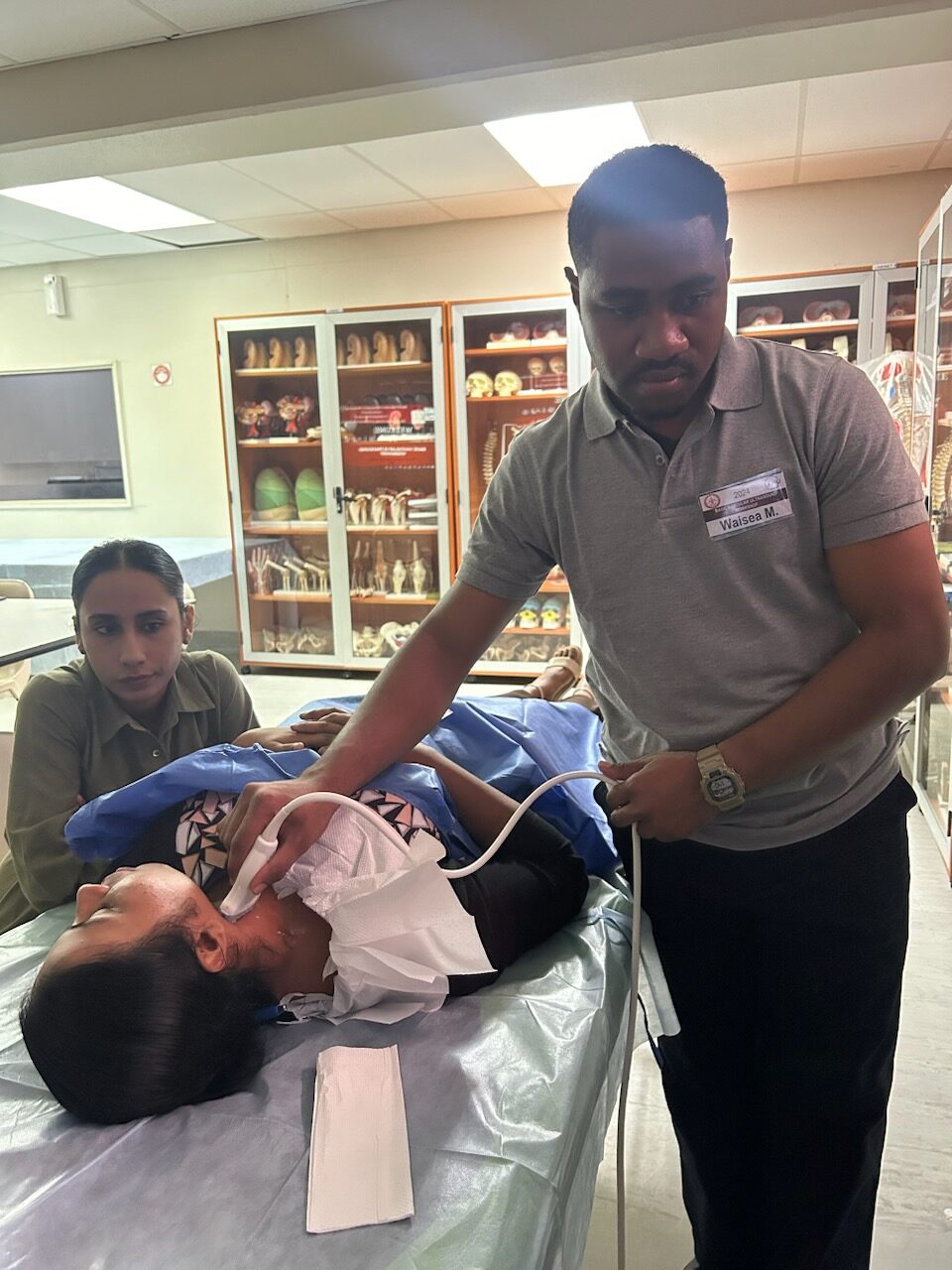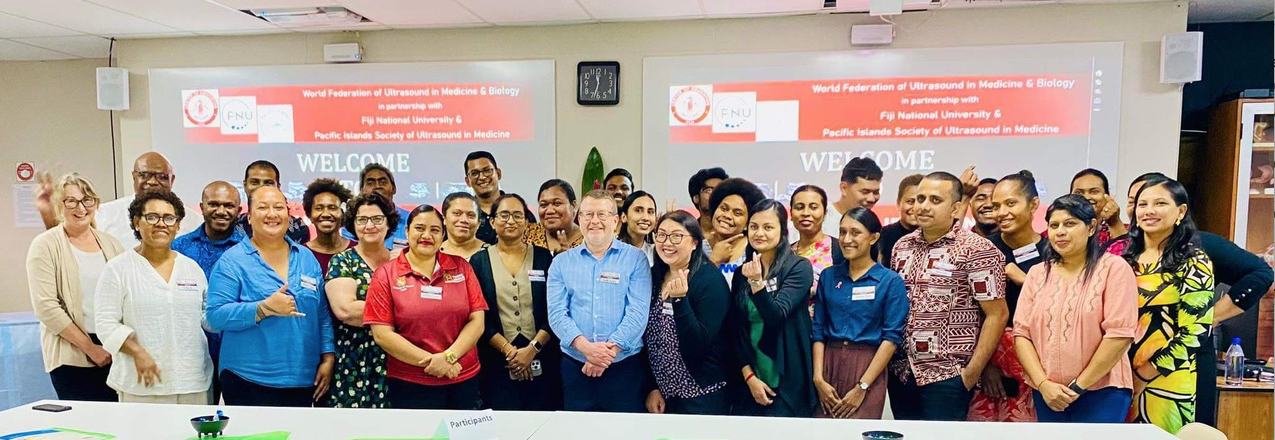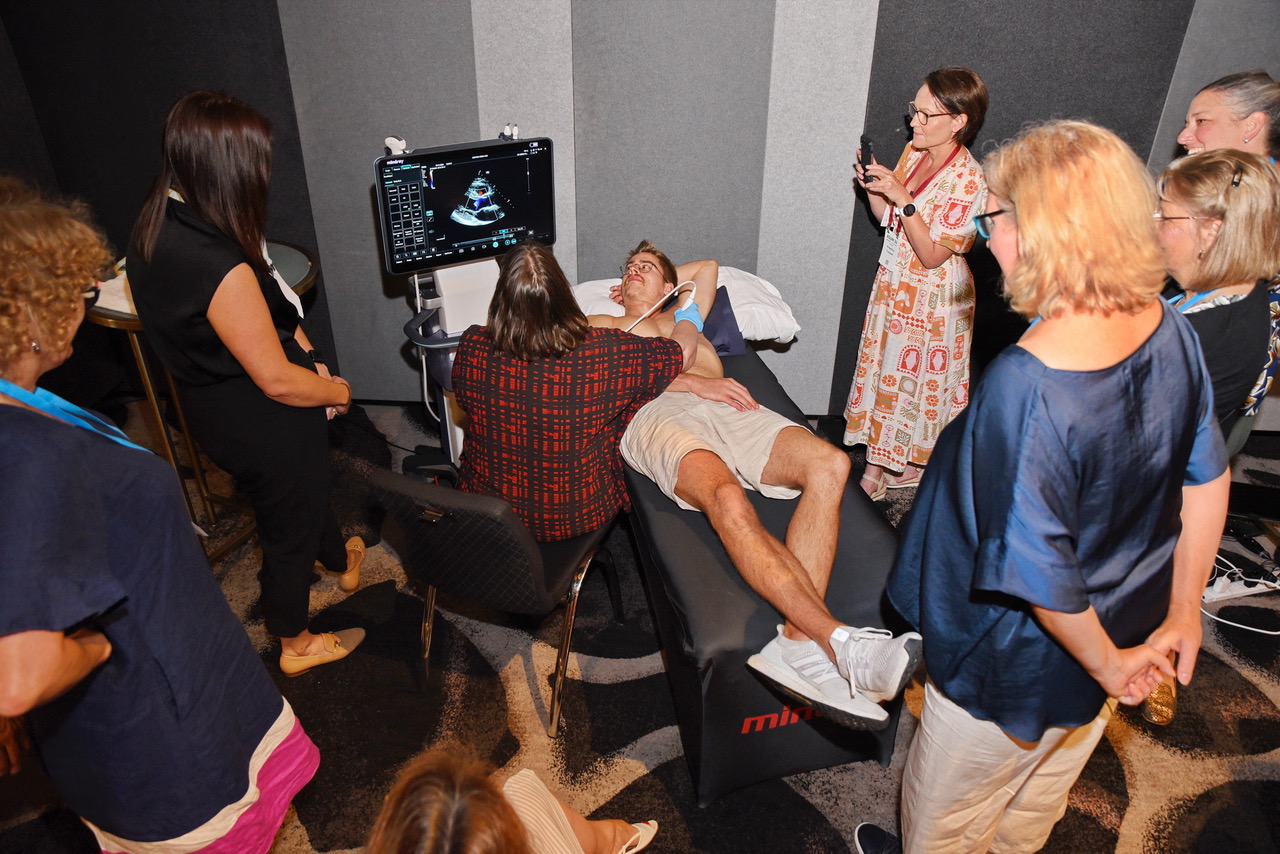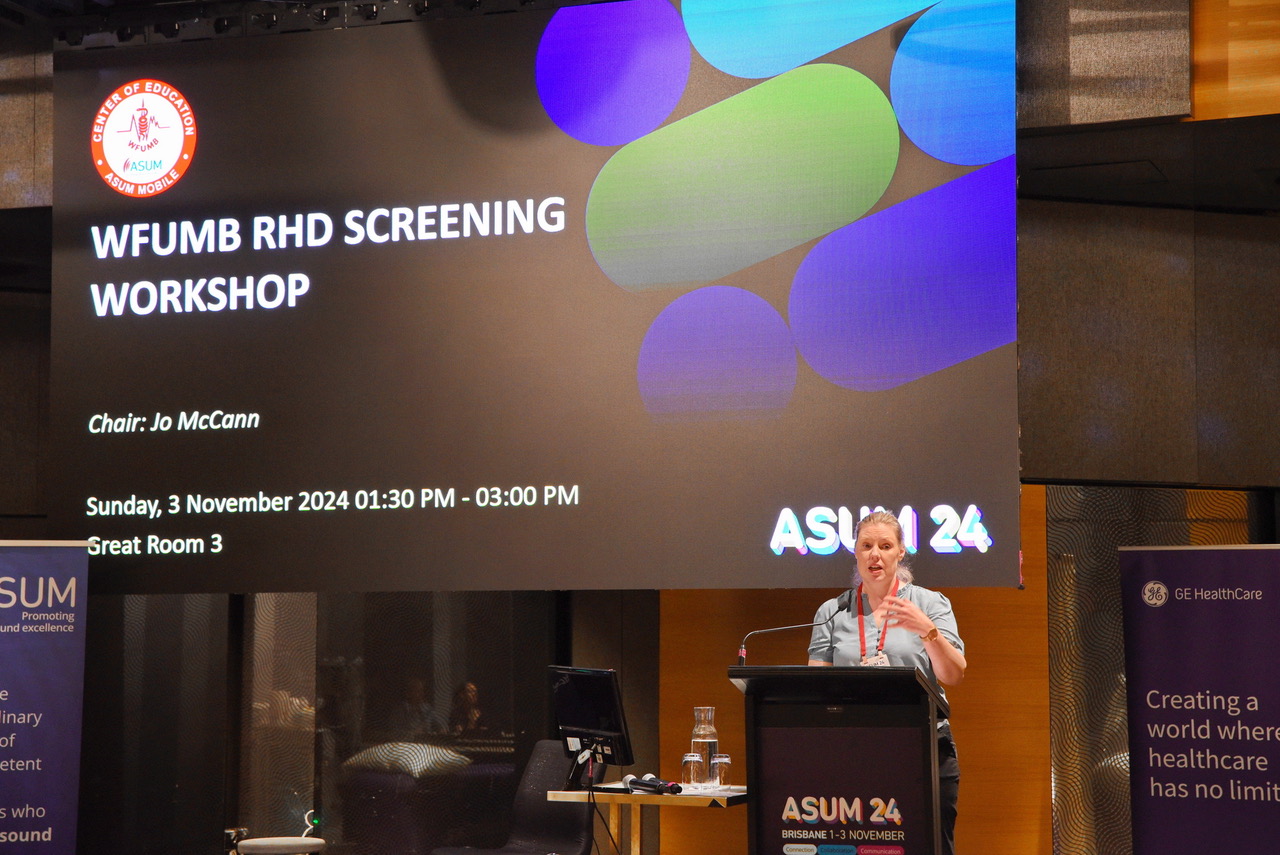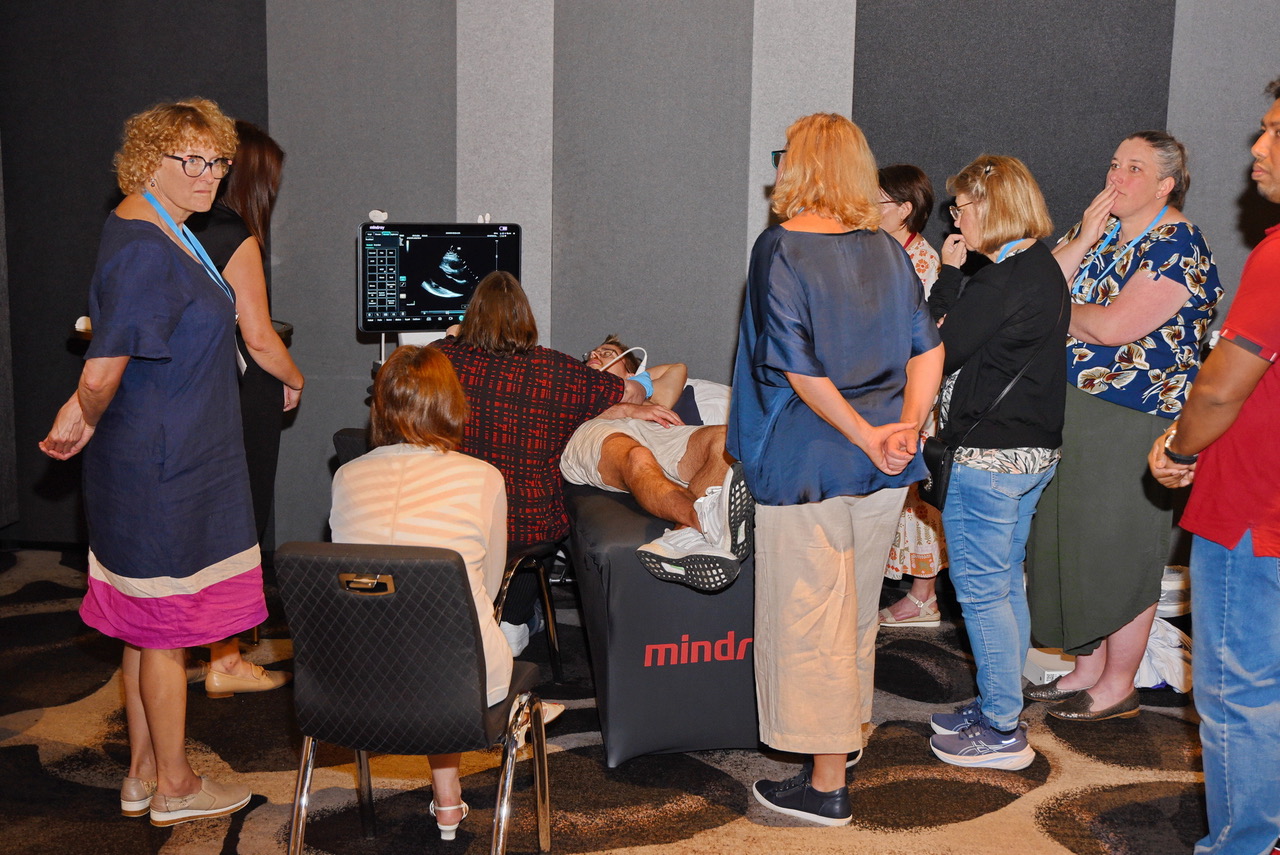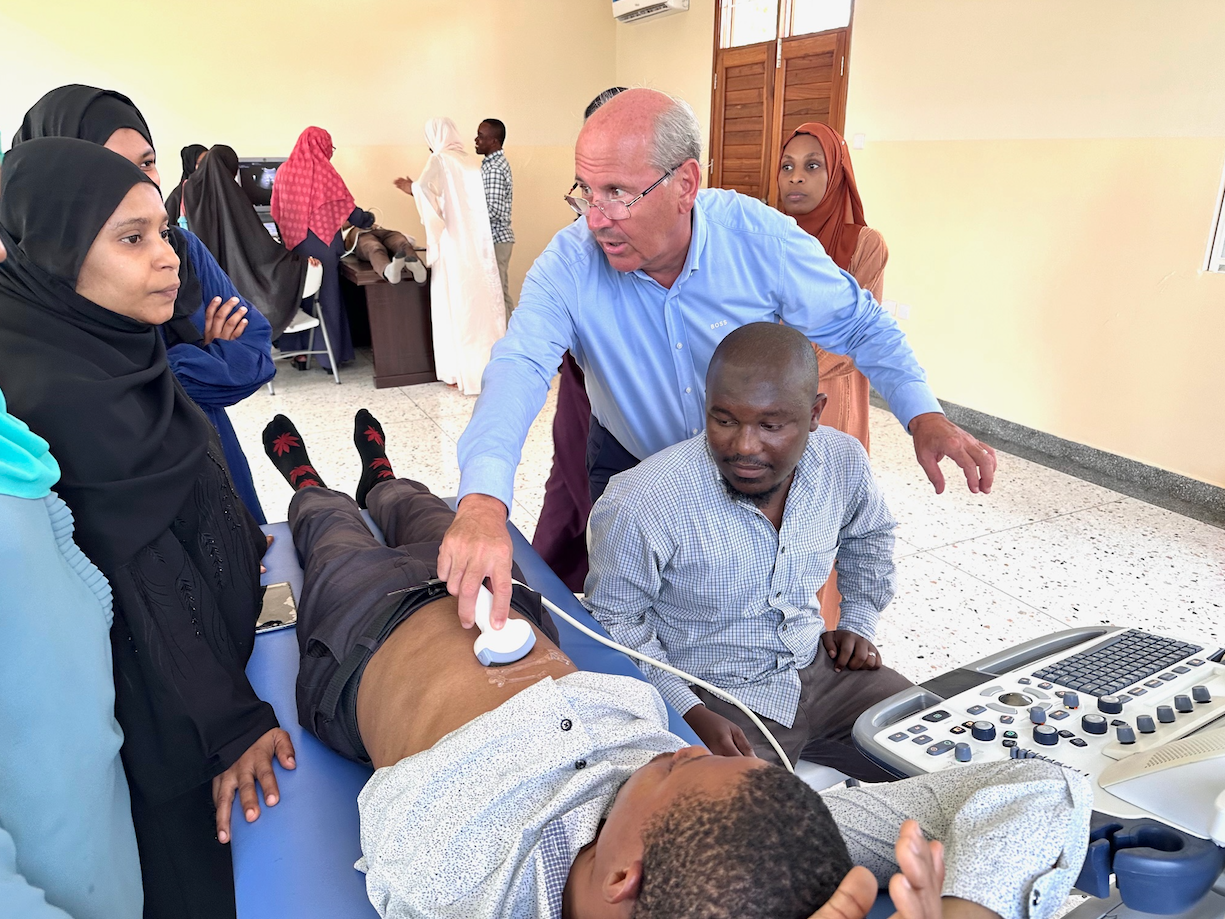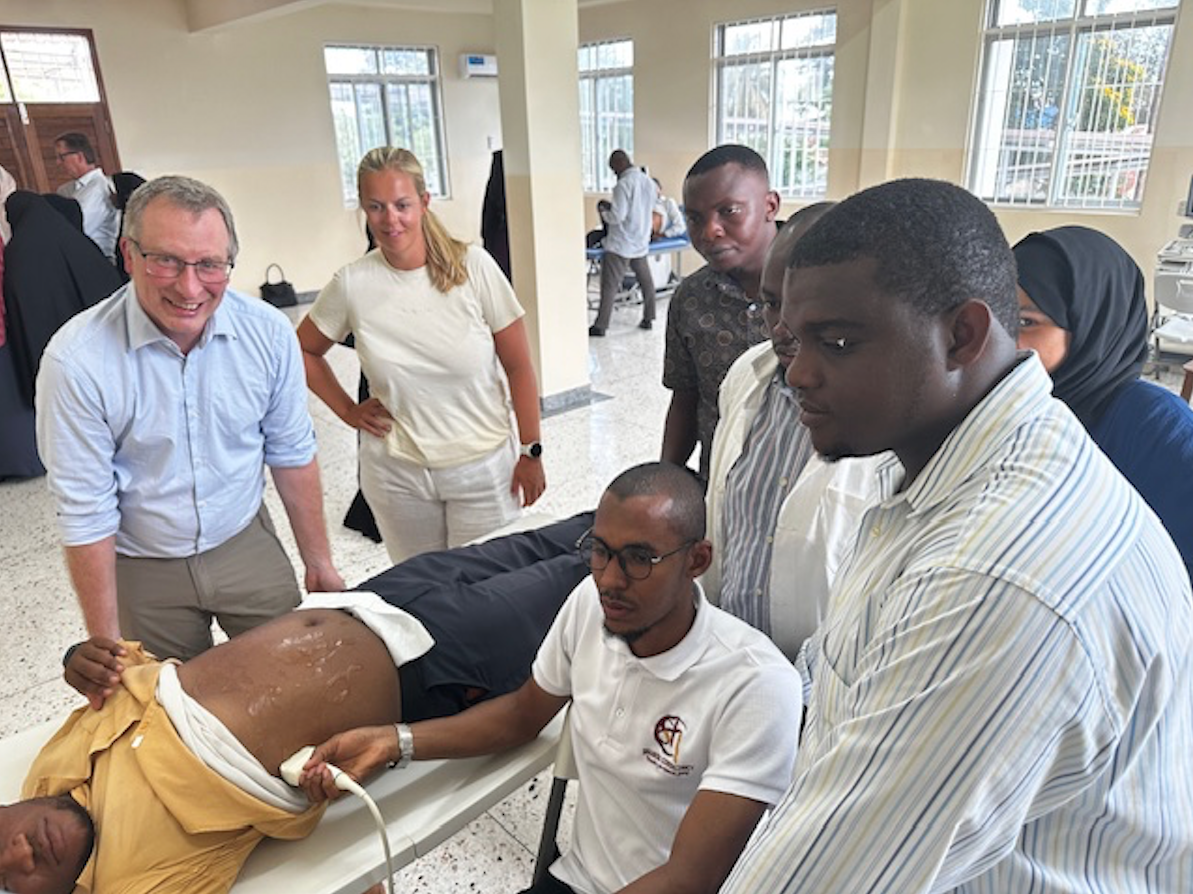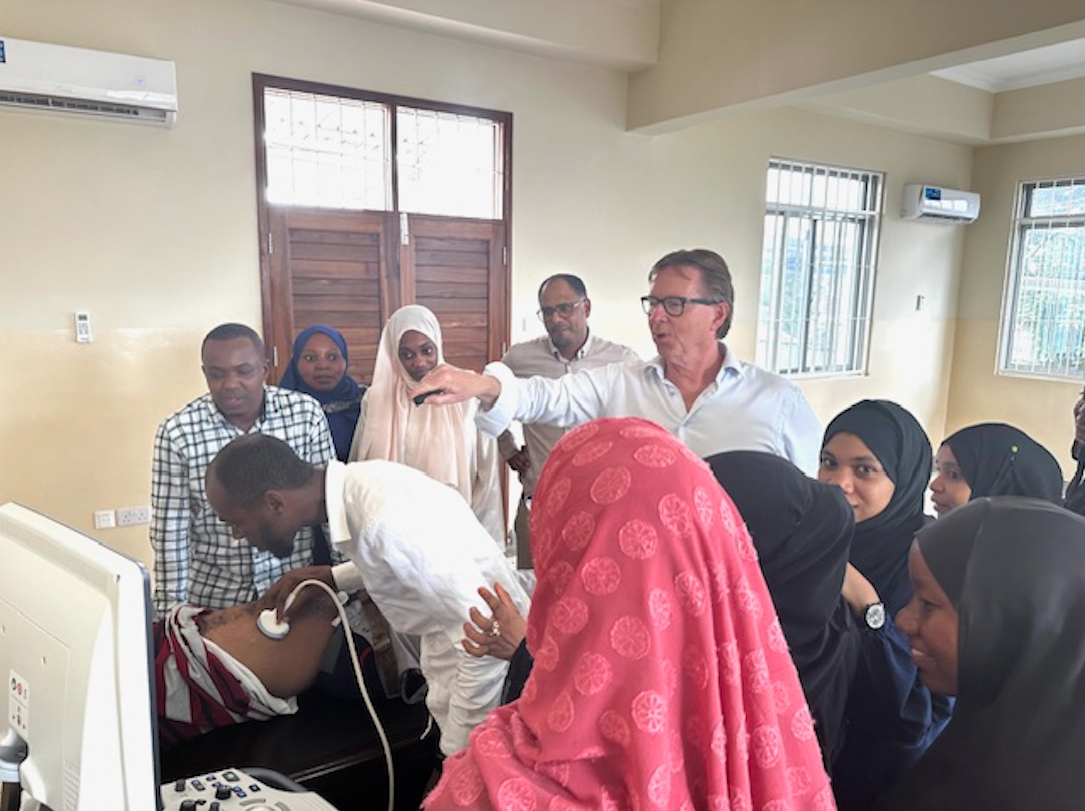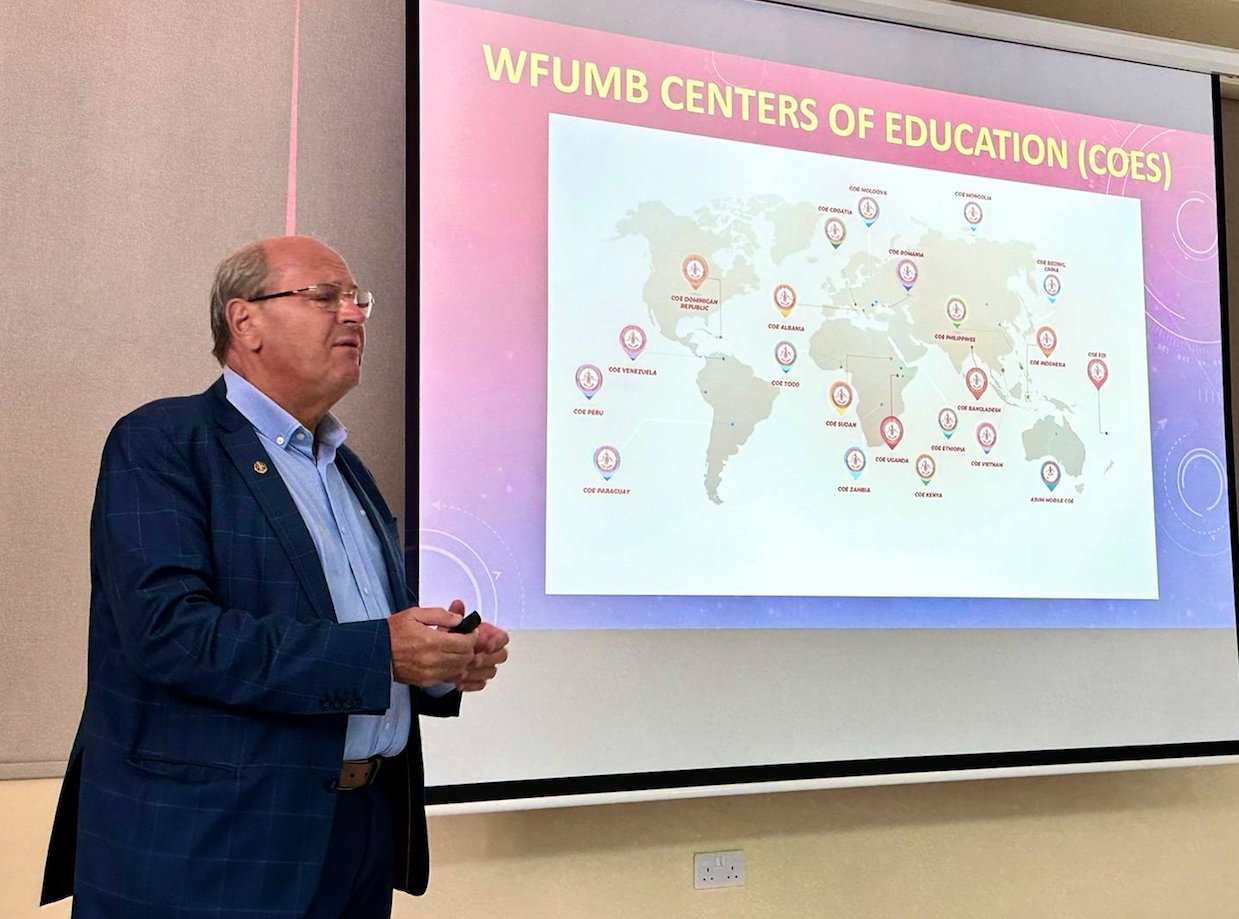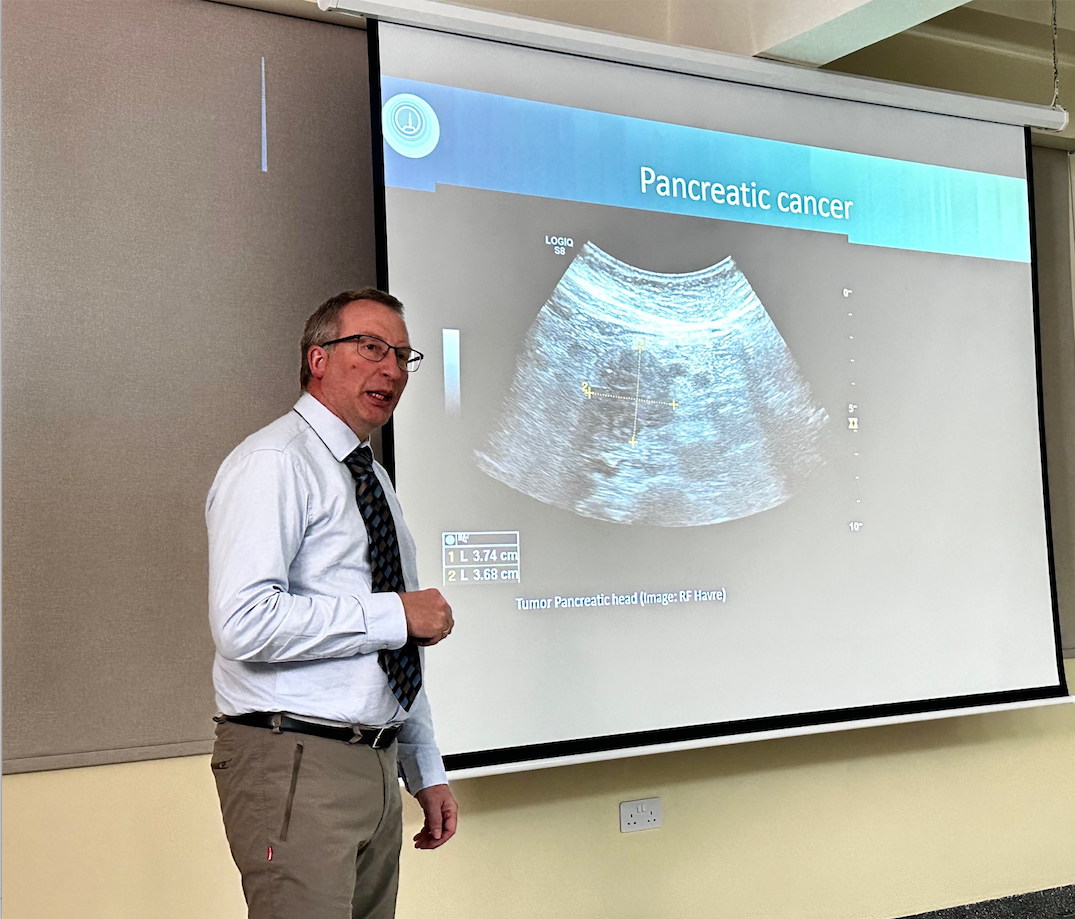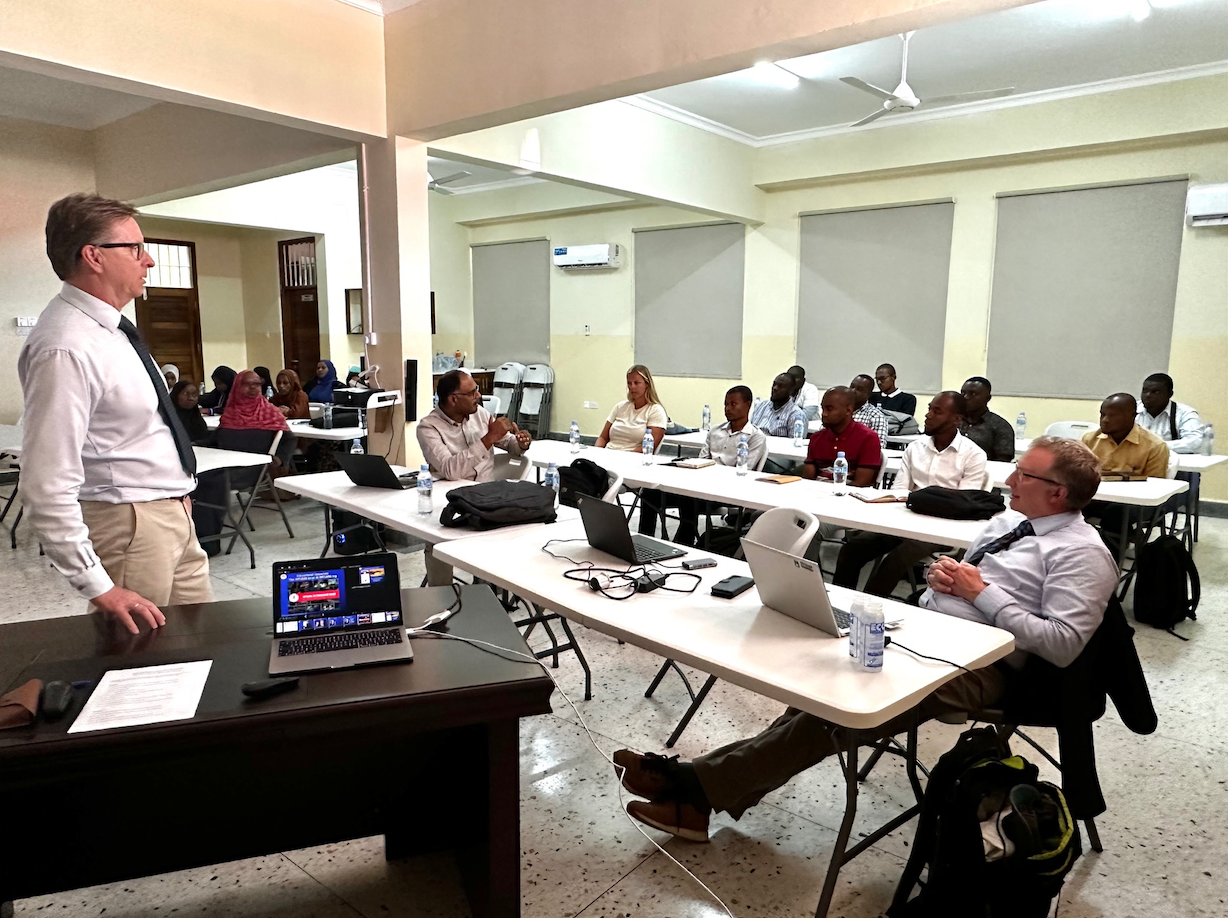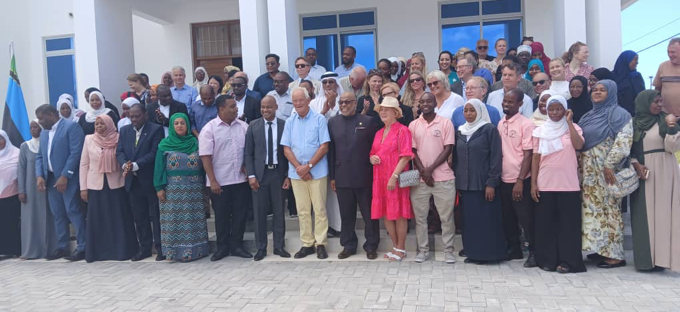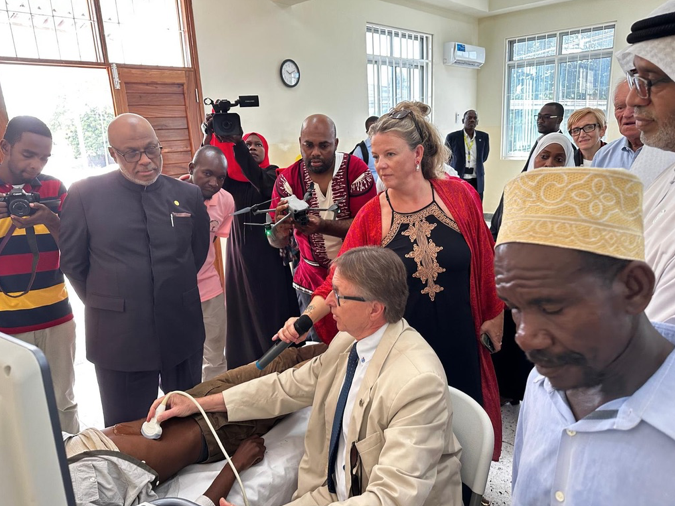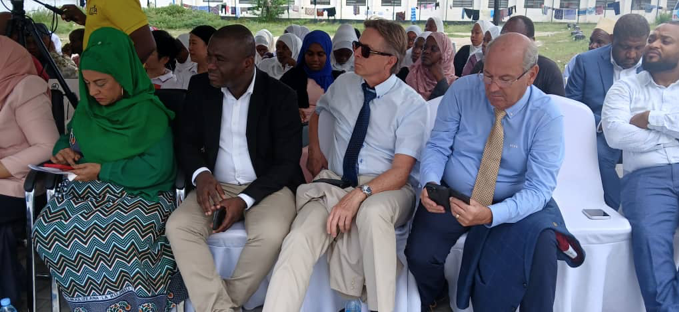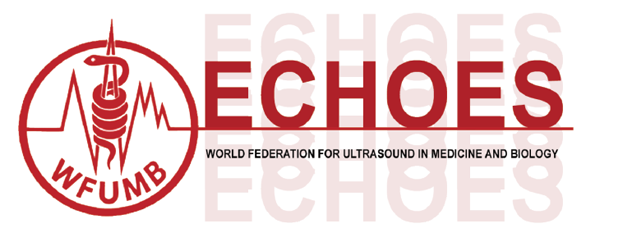
Echoes Issue No. 38
[ December 2024 ]

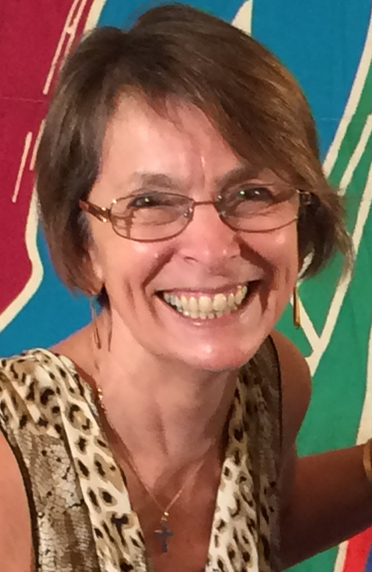
Welcome to the final edition of ECHOES for 2024.
It is with heavy hearts that we mourn the loss of Sudhir Vinayak, WFUMB & MASU President and a friend to many of us. The included eulogy and photo montage reflects the depth to which he was regarded.
There are reports from our Centres of Education in Kenya and Fiji as well as meetings in Zanzibar, Euroson 2024 & RSNA , and updates for WFUMB 2025 in Kyoto. Our new WFUMB president, George Condous sets down what he aims to achieve during his presidency.
Whether or not you are celebrating the festive season we wish you peace & joy.
Please be inspired by this edition & SPREAD THE WORD by forwarding to colleagues.
Professor Sudhir Vinayak 1958 – 2024
We are deeply saddened to announce the passing of Professor Sudhir Vinayak on Saturday 16th November 2024. The global ultrasound community has lost a highly intelligent, constructive colleague who was a powerful voice of African ultrasound and we have lost a key member of our WFUMB Family. Sudhir was elected as WFUMB President in 2023 but sadly was never able to participate fully in this role owing to his illness.
Christian Nolsoe and Odd Helge Gilja contribution on behalf of WFUMB
Sudhir Vinayak was an internationally acknowledged expert and leader in the use of ultrasound. He was highly respected for his professional insight into medical imaging and in particular for his visionary impact on ultrasound. Professor Vinayak was only the second MASU President of WFUMB and at the same time also President of MASU and ISR. A truly remarkable achievement that shows the respect he had in the world of medical imaging.
He was a pioneer in bridging the gap for ultrasound services to low-resourced areas of his homeland Kenya and he brought about implementation of sustainable solutions by educating midwives to perform obstetric ultrasound. This was achieved by means of innovative mobile technology systems in rural areas. A project that was carried out in collaboration with WFUMB and published in UMB.
We carry the memories of our dear friends with us in our hearts for life. Honor to Sudhir Vinayak´s memory and may he rest in peace.
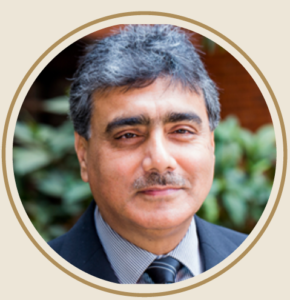
Franca Meloni and Giovanna Ferraioli write on behalf of MASU
We have known Sudhir for a long time and have shared a long journey with him in the MASU. He was a passionate radiologist with outstanding skills and exceptional at organizing and helping to raise the level of scientific knowledge in the Nairobi area where he worked and lived.
He organized several scientific conferences at the Aga Khan University Hospital, where he was the head of the radiology department. In these activities, he paid attention not only to the scientific content, but also to the human aspects, which meant consolidating existing friendships and making new ones aware that the human activity of a conference is the most important. After all, meetings are also about meeting people. He promoted the application of ultrasound imaging techniques in the hospital where he worked and encouraged his team to conduct research with experts from different countries. Sudhir has been a pioneer in promoting telemedicine in Kenya and has led a program to train midwives to perform basic ultrasound to screen high-risk pregnancies in rural Kenya.
Sudhir was our supporting companion on the journey through Africa, through MASU. He was forward thinking, looking ahead, and that "ahead" included technological, social, and cultural improvements for MASU and the countries of the African continent.
He had the ability to make you feel part of a big family, uniting, advising, supporting, as only a true leader can do. We remember a beautiful moment of unity at a very successful MASU Congress he organized at the Aga Khan University Hospital in Nairobi, when he arranged an amazing safari in a nearby National Park, having us sleep in a tent just opposite Mt. Kilimanjaro, and the thrill of opening the tent and seeing the majesty of the great mountain with its eternally snow-capped crater.
He will be missed by MASU and all of us, but we will keep his memory alive in our hearts and minds.
George Condous Elected WFUMB President

It is with the greatest honour and privilege that I accept the role of WFUMB President. I want to thank both the late Sudhir Vinayak and Ioan Sporea for their service and commitment to WFUMB over an extended period of time but especially in the role of the president over the last eighteen months. I also want to also extend my gratitude to ASUM who have supported me as a WFUMB administrative councillor and more recently in my role on the WFUMB Executive Board. My thanks also goes out to all the federations’ (EFSUMB, AFSUMB, FLAUS and MASU) representatives who have fostered collaborative and meaningful relationships since I commenced my role with WFUMB in 2016. During my Presidency, I want to reaffirm my engagement with the five federations as well as connect with our North American friends who have been with WFUMB from the very start.
It's an exciting time to be involved with WFUMB. We are continuing to fulfil our mission to bring sustainable ultrasound initiatives to the underserved areas of the world with the expansion of our outreach program. WFUMB is engaged with our twenty-one Centres of Education (CoEs) across five continents through enduring educational and financial support. During my Presidency, WFUMB should not only lead in the delivery of content to the CoEs but also have robust processes in place to assess competency in skills and knowledge of those we teach and train.
WFUMB continues to be the leading authority in science, research and patient centred care through our flagship journal, Ultrasound in Medicine & Biology (UMB), as well as the new sister journal WFUMB Ultrasound Open. Both these journals led brilliantly by Paul Sidhu and Manjiri Dighe, respectively, continue to deliver high quality peer-reviewed scientific content. As we move into the open access era, WFUMB’s journals are well placed to navigate the challenges of publishing in this competitive landscape.
As we approach WFUMB’s 20th World Congress in Kyoto Japan in May 2025, this joint meeting with the JSUM will be an incredible event. With more than 6,000 delegates predicted to congregate in Kyoto, Iwaki Akiyama is working diligently with the JSUM to ensure that the international faculty of ultrasound experts in all disciplines will deliver a cutting-edge scientific program; with insights into artificial intelligence now and into the future. This meeting will grow WFUMB’s membership across all communities as well as further enhance our reputation as the premiere multidisciplinary ultrasound biennial meeting.
During my presidency, WFUMB will continue to develop strategic partnerships and collaborative ventures with other societies and industry partners. These relationships are critical for WFUMB’s impact and recognition on the global stage. WFUMB is not only a global voice for safe ultrasound use but also advocates for improved patient care and outcomes with ultrasound at the cornerstone of management.
I truly believe WFUMB will continue to be relevant and achieve its ongoing strategic goals by looking to the next generation of ultrasound users (medical students, young investigators, sonographers, sonologists and radiologists) to ensure that future WFUMB leaders will continue WFUMB’s mission.
George Condous
WFUMB President
WFUMB at RSNA 2024
WFUMB representatives attended the 2024 RSNA meeting in Chicago this month and met with industry to seek support for WFUMB 2025 Kyoto, Japan and to give them details about the next congress planned for 2027 in Lima, Peru. The WFUMB 2024/2025 report was well received and the Centres of Education workshops and course programmes for 2025 will be circulated to trade as soon as all information is received.
Attendance at RSNA was almost 40,000 on site and 2,000 online. We did not manage to see all 715 exhibitors but had fruitful meetings with Philips, Canon, GE Healthcare, Siemens, Esaote, Mindray, Supersonic Imagine, Samsung and Fujifilm.
Ideas were exchanged with the World Federation of Pediatric Imaging (WFPI) and WFUMB received a request to consider a new Centre of Education with the WFPI President Olubukola Omidiji and Prof Atalabi as Directors. They believe that with very few Paediatric radiologists in Nigeria, this will help improve management of cases in Nigeria, thus reducing morbidity and mortality.
- Fujifilm rep, Cristina Chammas, Antonio Matteoni and Ivan Quiros
- Meeting WFPI at RSNA
- WFUMB meeting Sonoscape
EFSUMB Summer School 2025
One of the most important strategic goals of the European Federation of Societies for Ultrasound in Medicine and Biology (EFSUMB) is to improve medical students’ ultrasound education. The medical students who are enthusiastic about ultrasound are the future of ultrasound in Europe and the future of EFSUMB. In EFSUMB we have established Young EFSUMB with a Students’ committee and Students’ Ultrasound Congresses (STUC) among other things. The enthusiasm of the participating medical students is impressive and vital and crucial for our future development.
We are organising the first EFSUMB summer school for medical students, which we hope will be a recurring event. The course is planned for 2 ½ days in Berlin. It is recognized as a EUROSON School, with full endorsement of the European Federation of Societies for Ultrasound in Medicine and Biology (EFSUMB).
The venue of the school will be the Hotel Aquino in the city center of Berlin with easy access to sights and shopping, yet in a quiet location.We are looking forward to seeing many active students and young residents for three active days focusing on ultrasound and establishing new European friendships.
View the event website and programme at https://efsumb-studentschool.org/
Looking forward to seeing you.
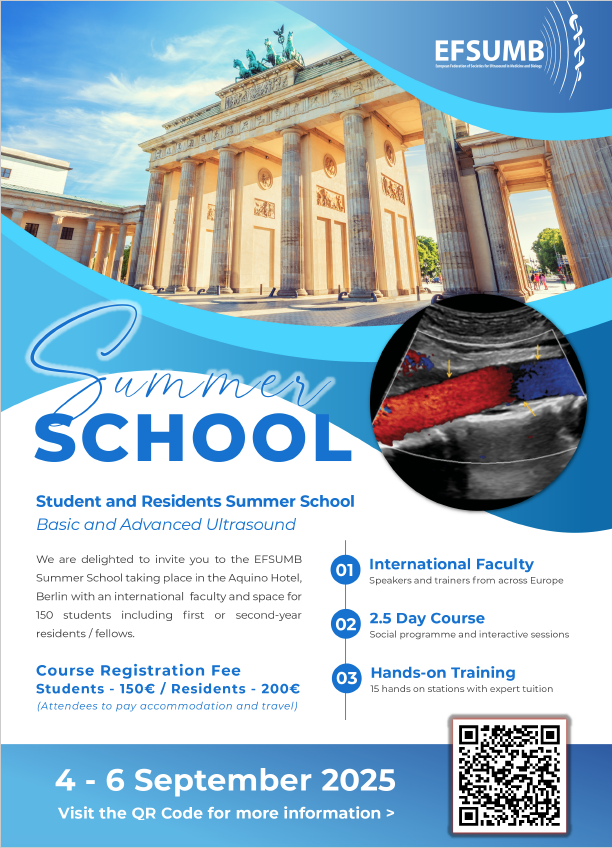
WFUMB Webinars for 2025
The e-learning group have proposed a series of webinars based on ultrasound for low resourced environments that will align with WFUMB's mission.
Topics will include
- Obstetrics in low resource environment
- Ultrasound for dengue fever complications
- Scanning for rheumatic heart disease
- Hepatocellular Carcinoma
- Schistosomiasis
ASUM, under the keen supervision of Adrian Goudie, will take over these webinars starting in January 2025.
Look out for further announcements early in the New Year!
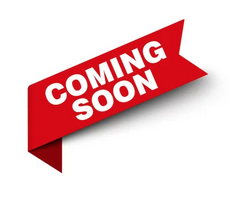
EUROSON 2024 THROUGH MY EYES:
A Transformative Journey in Ultrasound And A Call For Greater Inclusivity
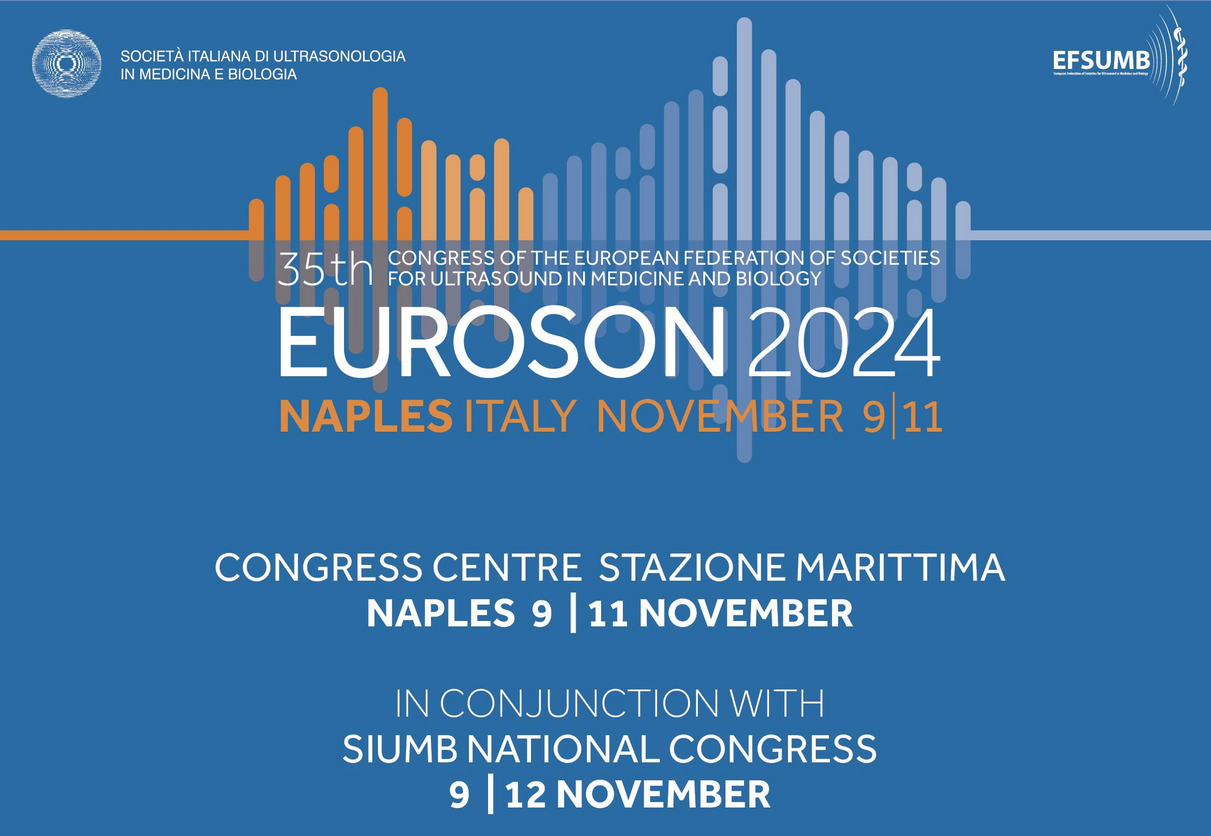
Attending EUROSON 2024 in Naples, from November 9th to 11th, was a journey into the heart of ultrasound innovation. With its expertly curated sessions, world-class speakers, and cultural immersion, the congress left me inspired and better equipped to contribute to the advancement of diagnostic ultrasound in my home country.
Innovations That Inspired Me
One of the standout sessions for me was "Contrast-Enhanced Ultrasound in Liver Lesions" by D.A. Clevert. This session highlighted the diagnostic precision of this advanced imaging modality, showcasing its potential to revolutionize liver disease management. Equally fascinating was the session on ultrasound-guided thermal ablation in tumor treatment—a technique not yet practiced in Uganda and virtually absent across Africa.
These two topics resonated with me deeply because they represent the cutting edge of ultrasound technology, with the potential to significantly improve patient outcomes. Yet, they are examples of innovations that remain out of reach in many low-resource countries, underscoring a critical gap in global healthcare equity.
A Need for Inclusivity
As the sole participant from Africa at the congress, I felt both honored and acutely aware of the under-representation of professionals from low-income resource regions. My attendance was only possible thanks to a scholarship from WFUMB, and I am profoundly grateful for this support. Special thanks go to Mrs. Lynne Rudd, WFUMB’s Administrative Manager, whose dedication and assistance were instrumental in ensuring I could participate.
![Echoes Issue No. 38 [ December 2024 ]](https://wfumb.info/wp-content/uploads/2024/12/image0-rotated.jpeg)
This experience reinforced the urgent need for greater inclusivity. Professionals in low-resource settings face significant financial and logistical barriers to accessing global platforms like EUROSON. To bridge this gap, I encourage congress organizers to:
- Expand scholarship opportunities to support more attendees from underrepresented regions.
- Collaborate with international sponsors to subsidize travel, registration, and accommodation costs.
- Introduce virtual attendance options for those unable to travel.
Such efforts would ensure that the wealth of knowledge shared at EUROSON reaches the professionals and regions where it is needed most.
Cultural Highlights
EUROSON 2024 wasn’t just about science—it was also a celebration of culture. The inclusion of a session on the history of Naples added a unique and enriching dimension to the congress, offering participants a glimpse into the heritage of the host city. This thoughtful addition made the event as memorable as it was educational.
Conclusion
EUROSON 2024 was an extraordinary event that deepened my knowledge of ultrasound innovations and broadened my professional horizons. However, to maximize its impact and truly champion global healthcare equity, I believe the congress must prioritize inclusivity. By creating pathways for greater participation from low-resource regions, EUROSON can become a beacon of knowledge and opportunity for all.
I am deeply grateful to WFUMB and Mrs. Lynne Rudd for their unwavering support, and I commend the organizers for hosting such an inspiring congress. I eagerly look forward to future events that continue to innovate, educate, and unite.
Warm regards,
Harold Mutaryebwa
COE Kenya – Vascular Ultrasound Workshop Report
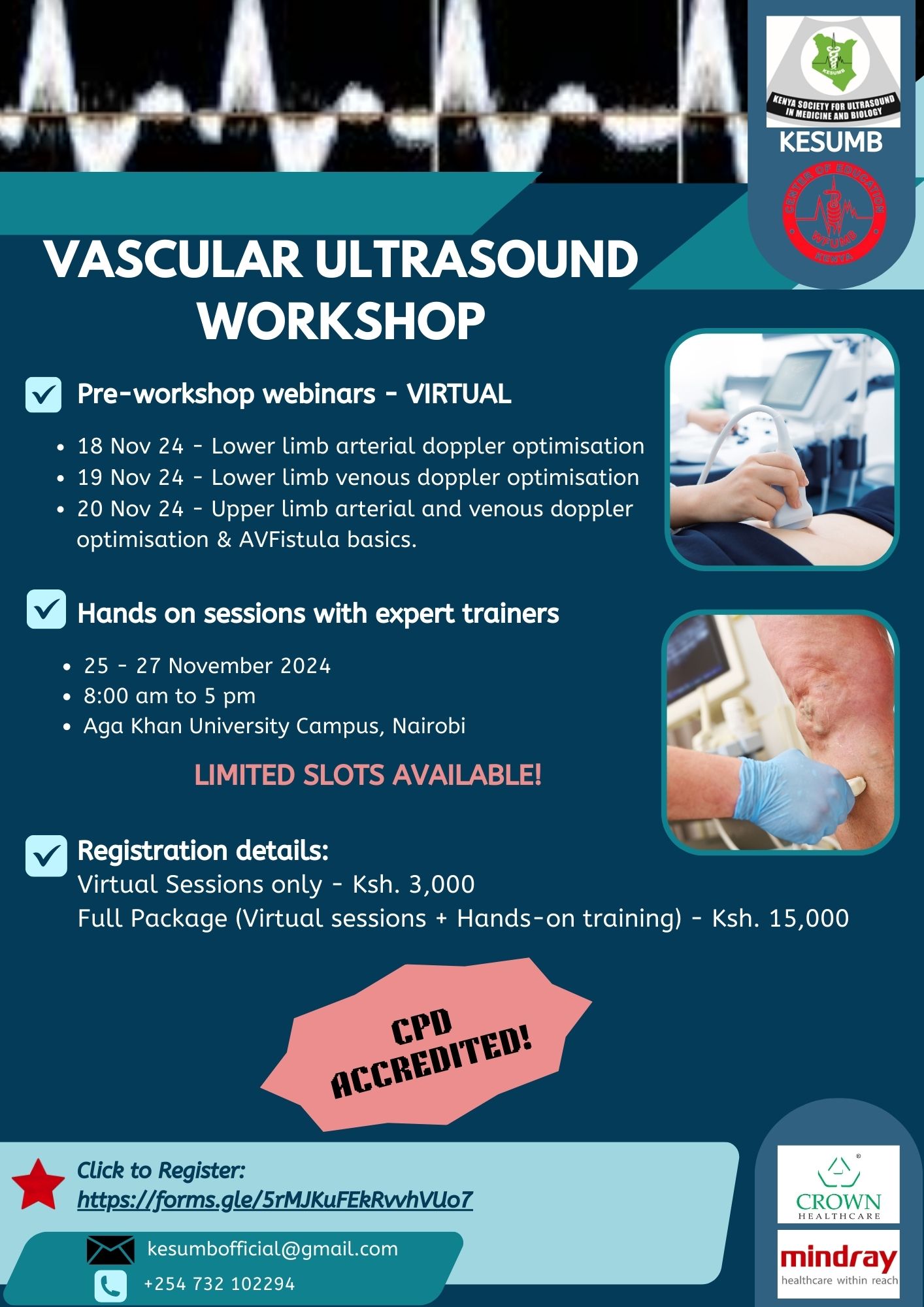
COE Kenya, in collaboration with the Kenya Society for Ultrasound in Medicine and Biology (KESUMB), recently conducted a highly successful vascular ultrasound workshop. Sponsored by Mindray and Crown Healthcare Nairobi, the workshop was led by Dr. Naman Bagdi, a vascular interventional radiologist practicing in Pune, India, with over 10 years of experience in vascular imaging. Held in a hybrid format, the workshop successfully combined virtual learning and hands-on practice to provide an enriched educational experience for participants. It was structured with three webinars conducted a week prior to the hands-on sessions, followed by an intensive three-day in-person training. WhatsApp groups were created for both the virtual sessions and the hands-on sessions. Participants were encouraged to start sending in questions early, which were addressed during the sessions.
Virtual Webinars
The virtual component consisted of three webinars, each one hour long, held from November 18 to 20, 2024. These sessions covered foundational topics essential for effective hands-on practice:
- Day 1: Venous Doppler Lower Limb Anatomy and Image Optimization
- Day 2: Arterial Lower Limb Doppler Anatomy and Image Optimization
- Day 3: Upper Limb Arterial and Venous Doppler Anatomy and Image Optimization, basics of AV Fistula assessment
The webinars were well-received, attracting 84 attendees, who actively participated and engaged in discussions to build a strong theoretical understanding. Some participants were motivated to scan their patients using the knowledge gained from the webinars and shared images on the WhatsApp group. These images were discussed during the sessions, further enhancing the learning experience.
Hands-On Workshop
The in-person hands-on training was conducted from November 25 to 27, 2024, with each day dedicated to specific topics:
- Day 1: Arterial Doppler and Pathologies
- Day 2: Venous Doppler Pathologies and Varicose Veins
- Day 3: Upper Limb Doppler and AV Fistula
Initially planned for 40 participants, the hands-on sessions accommodated 60 attendees, demonstrating the high demand and interest in the workshop. The training leveraged a collaborative effort with the Lions Diabetes Foot and Wound Clinic and Aga Khan nephrologists to ensure ample patients for real-case practice. Participants were also encouraged to bring their own patients, which added diversity to the clinical cases studied.
Each day began with a quiz to assess knowledge retention from the webinars, followed by a discussion and a lecture. The trainer demonstrated techniques before participants practiced under expert supervision for the remainder of the day. This interactive structure allowed participants to apply their theoretical knowledge in a practical setting and gain valuable insights.
Key Highlights
- The hybrid model enabled flexible learning while ensuring hands-on experience.
- Collaboration with local clinics and specialists enriched the clinical exposure.
- Active participation from students, including bringing their own patients, enhanced the learning experience.
- Participants utilized webinar knowledge to perform scans on their patients, shared images on the WhatsApp group, and received feedback during the sessions.
- High participant retention and engagement across both virtual and in-person components.
The vascular ultrasound workshop achieved its objective of equipping participants with the skills and knowledge required for effective vascular ultrasound practice. Feedback from participants highlighted the value of combining webinars with hands-on training. COE Kenya and KESUMB aim to identify participants with the potential to be nurtured as trainers from this cohort and plan to make this workshop a recurring annual event.
Nidhi Leekha
A New President and CEO for ASUM!
A huge well deserved congratulations to Jo McCann (WFUMB Co-Opted Council Member) who has taken over from Alison Deslandes, as ASUM President. ASUM also welcomes a new CEO, Trish Manten to the board of staff.
With these fresh appointments, we look forward to great things from the ladies at the helm of ASUM!
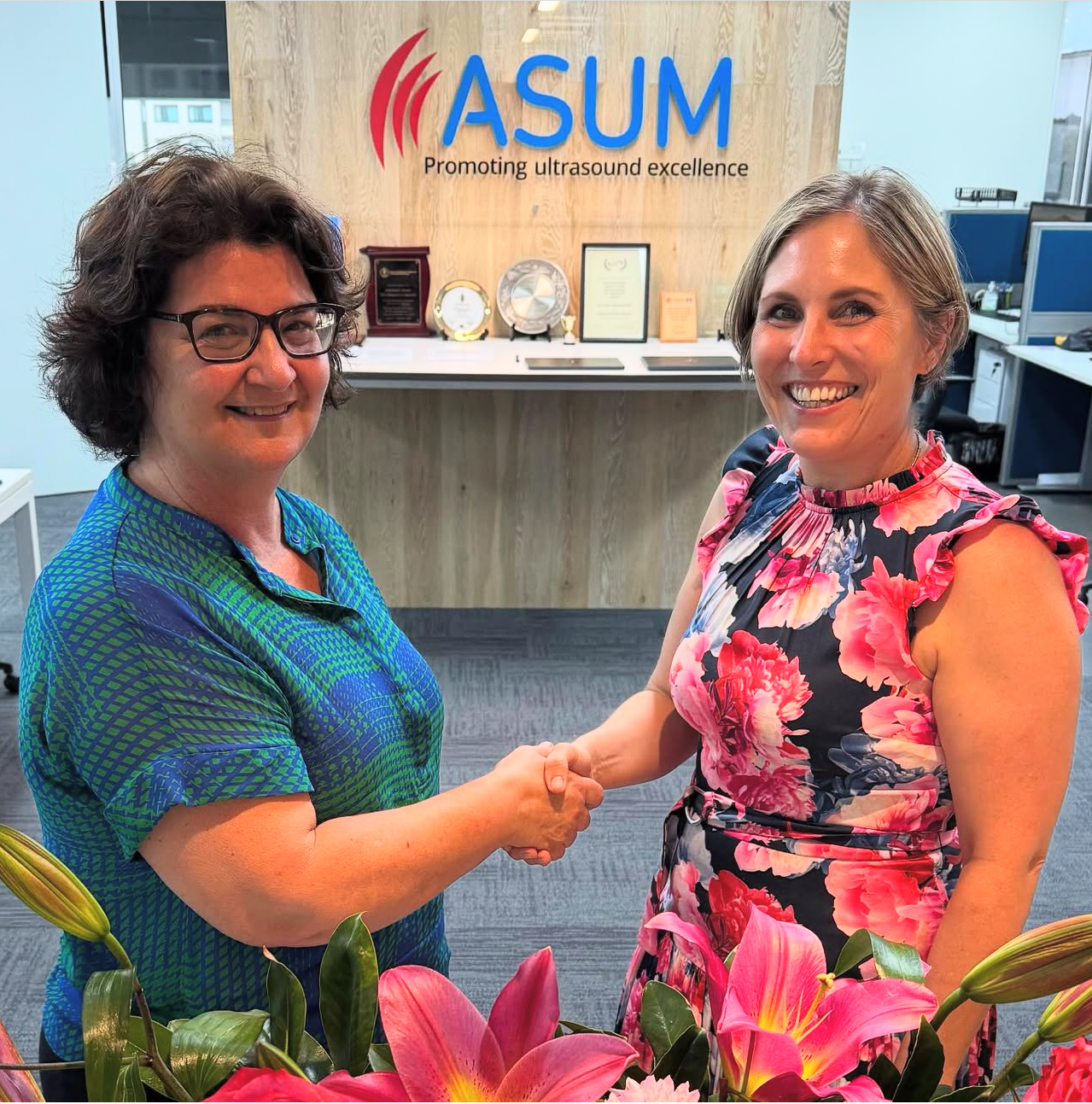
Jo McCann welcoming Trish Manten to the ASUM Team
ASUM 2024 Conference, Brisbane
ASUM Congress 24 in Brisbane November 1st-3rd
The ASUM Board invited me as a WFUMB speaker. The conference was attended by around 350-400 participants and, in addition to gynecology and obstetrics, focused on POCUS and hand held systems. I was able to contribute to the program with 4 lectures (INVUS - biliary us guided interventions; Emergencies and acute situations in gastrointestinal US (GIUS); Acute abdominal situations - quadrant sonography; Handheld US (HHUS) in outpatients).
The hospitality and enthusiasm for discussion were excellent. I was very well integrated, got to know the entire ASUM board and can especially send warm greetings from Susan Westerway and Jo McCann (ASUM President).
- Unfortunately I didn't have much time in Australia's "Las Vegas" but at least I petted a few koalas!
Best wishes
Dieter
Prof. Dr. Dieter Nuernberg
Ultrasound Trainer, Tupua Tamasese Meaole Hospital, Apia, Samoa
November 2024
At a recent workshop in the Pacific Island of Samoa, the Integrated Ultrasound Trainer, kindly donated by Intelligent Ultrasound, provided hands-on, simulation-based learning to local clinicians. The ultrasound trainer enables local medical personnel to develop critical skills in early pregnancy assessment such as image acquisition and fetal measurements, in a controlled, supportive setting.
This approach not only enhances the clinical capabilities of Samoan healthcare workers but also addresses the critical gap in maternal healthcare by empowering local providers to conduct accurate first-trimester ultrasound examinations. The integrated trainer represents a sustainable solution to medical education using technology to bridge the knowledge and skills divide in Pacific Island healthcare systems.
Jo McCann

Basic Vascular Course, Fiji COE
The Basic Vascular Ultrasound workshop for 2024 was held at the Fiji WFUMB CoE on the 25-26th October. We received Expressions of Interest (EoI) from 41 Medical Imaging Technologists plus 12 EoI from non-eligible applicants, eg doctors or domiciled from outside the Pacific region with 22 applicants selected to attend the workshop.
The workshop covered several topics including Doppler physics optimisation, Aorta, DVT- Leg, DVT-Arm, Carotids, Reporting and Image Review. The programme delivered 3.5 hours of didactic learning and 7 hours of hands-on scanning time for the participants to learn and finesse the ultrasound techniques. This high piratical competent is aimed at ensuring the participants returned to their workplace comfortable with the new techniques.
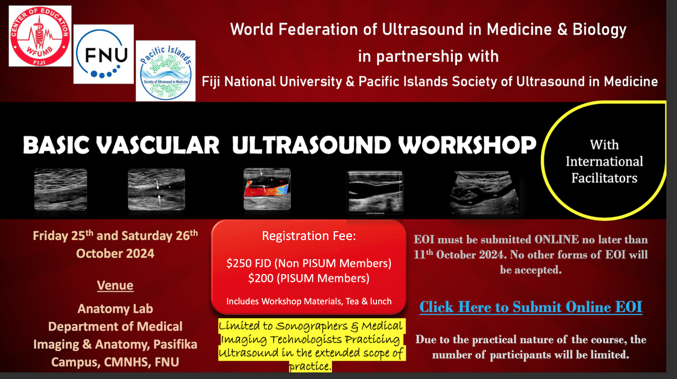
A thread through all the workshops for the last few years is the lack of models to image resulting in the participants taking turns as models. Although improved at this workshop due to the undergraduate students volunteering to come along, many male attendees had to fill the vacant model slots giving them less hands on scanning time. Consideration should be given to paying models a small fee to encourage recruitment. The scanning models should be normal models rather than patients attending requesting an ultrasound report. The tutors do not have registration in Fiji which is a clinical risk for them and the WFUMB CoE.
The FNU Media team attended and featured the workshop on the FNU Facebook page which raised the profile of the WFUMB CoE and the support from the FNU medical imaging team.
Informal feedback indicated the attendees were happy with the content and the delivery of the workshop. Formal feedback to follow. The Workshop was well supported from the team at PISUM and Fiji National University and we are beginning to plan for the first workshop in 2025.
We thank the team for the support at this workshop and throughout the year.
WFUMB ASUM Mobile CoE, RHD Screening Workshop
The first Mobile ASUM workshop RHD Screening was held in conjunction with the 2024 ASUM Conference in Brisbane, Australia.
Rheumatic heart disease (RHD) is a preventable disease that occurs in poor countries and remote areas of developed countries such as Australia and New Zealand and affects Indigenous children disproportionately.
Limited echo protocols are now clearly established that allow reasonably accurate detection aligned with the World Heart Federation guidelines and diagnosis and treatment RHD.
The Workshop included a short didactic lecture explaining the RHD views then rotation of through three stations of hands-on scanning of the RHD screening protocol a with a fourth station of Image interpretation.
Informal feedback from the attendees indicated that they felt that the content was worthwhile, and they would be able to implement it into their daily work.
ASUM Mobile CoE plans to run the workshop in 2025 in rural and remote areas of Australia and New Zealand but will ensure that the messaging is clearer regarding that the workshop is aimed at non- cardiac sonographers.
Skills Center and Ultrasound Course in Zanzibar
During November, an Ultrasound Course was carried in Zanzibar. To show our support, Prof. Ioan Sporea was sent as a visiting WFUMB Professor.
During the period of 18-20 November 2024, in the new Skill Center in Zanzibar, a post-graduate course in ultrasound was carried out. In excellent local conditions, almost 25 young people were trained for ultrasound, with lectures, live demonstrations, and hands-on sessions. The new Skills Center had great facilities with a large lecture room and 4 ultrasound machines with generous space.
Multiple theoretical sessions during the 3 days covered topics from basic introduction to ultrasound physics to sono-anatomy and more advanced US techniques. The speakers were Prof. Odd Helge Gijlia (Norway), Prof. Ioan Sporea (Romania), Dr. Trond Engjom (Norway) and Dr. Mohammed Said (Zanzibar). Interactive discussions took place alongside very nice ultrasound images which were presented. English language spoken by all participants made the meeting very useful for young participants. The program of the meeting covered the abdomen and many pathological conditions.
Ioan Sporea
Official opening of the new Skill Center at Zanzibar
Due to a gracious donation from Trond Mohn, a former business man in Bergen (Norway), I had the pleasure of participating in planning of a new building close to Lumumba Hospital just outside Stone Town. The Skill Center has a well-equipped auditorium for 70 persons and rooms for hands-on training in ultrasound, among other facilities. So far we have equipped the center with 4 ultrasound scanners, that we used in our 3-days ultrasound course in November. The course was a collaboration between WFUMB and National Centre for Ultrasound in Gastroenterology (NCUG) in Bergen, see special report from Prof. Sporea.
On November 20th, the health minister of Zanzibar and Trond Mohn, together with over 100 delegates came to open the Center. It was a great ceremony and I also was given the opportunity to demonstrate ultrasound scanning to the health minister to show the great potential for ultrasound to underserved areas in Africa.
Odd Helge Gilja
Reminders to Federations
CALL FOR BIDS TO HOST WFUMB 2029
The WFUMB holds a world congress every two years and requires submissions to be lodged in advance to allow sufficient time for Council to carefully consider competitive bids prior to deciding on a successful host. Applications will be discussed by the Executive Bureau and Administrative Council and a final decision will be made at the Administrative Council meeting during WFUMB 2025 Kyoto, Japan 29 May 2025.
World Congresses of WFUMB have been scheduled through to 2027 and a reminder of the previous hosts:
- WFUMB 2019 Melbourne, Australia (ASUM)
- WFUMB 2022 Timisoara, Romania (EFSUMB)
- WFUMB 2023 Muscat Oman 4-7 November (MASU)
- WFUMB 2025 Kyoto, Japan 29 May – 1 June (AFSUMB)
- WFUMB 2027 Lima, Peru 20 – 23 May (FLAUS)
Applications are now sought for the next available congress in 2029. Interested parties are invited to submit a letter of intent to the WFUMB administration, lrudd@wfumb.org. A full application will be required by 29 April 2025.
CALL FOR YOUNG INVESTIGATORS FOR WFUMB 2025
- to present work in the field of clinical and/or basic research. The award is available for an original paper (not published at the time of the Congress)
- WFUMB shall make available up to 2,000 USD to support the candidates cost of economy travel and reasonable accommodation expenses, supported by receipts
- Free registration will be offered by the congress organisers
- Presenters must be under 40 years (at the opening date of the Congress)
Item 9.
CALL FOR NOMINATIONS FOR WFUMB COMMITTEES
WFUMB Congress 2025
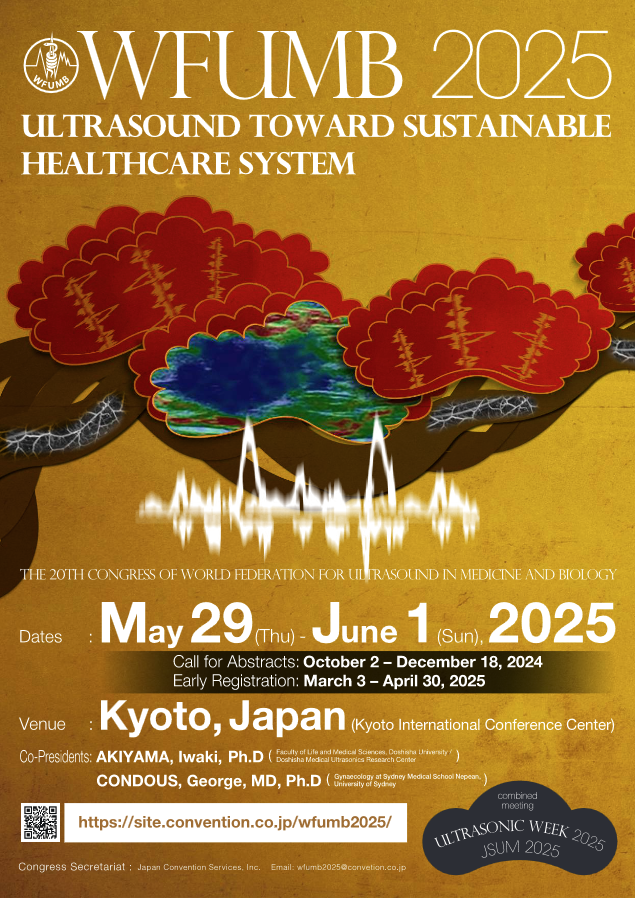
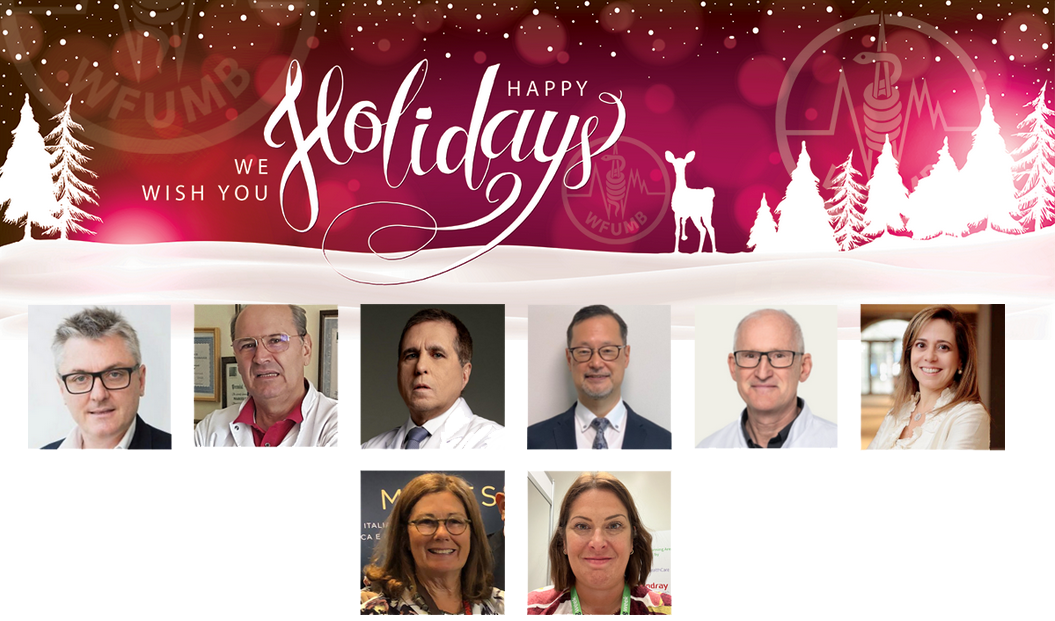
WFUMB Team wishes you
